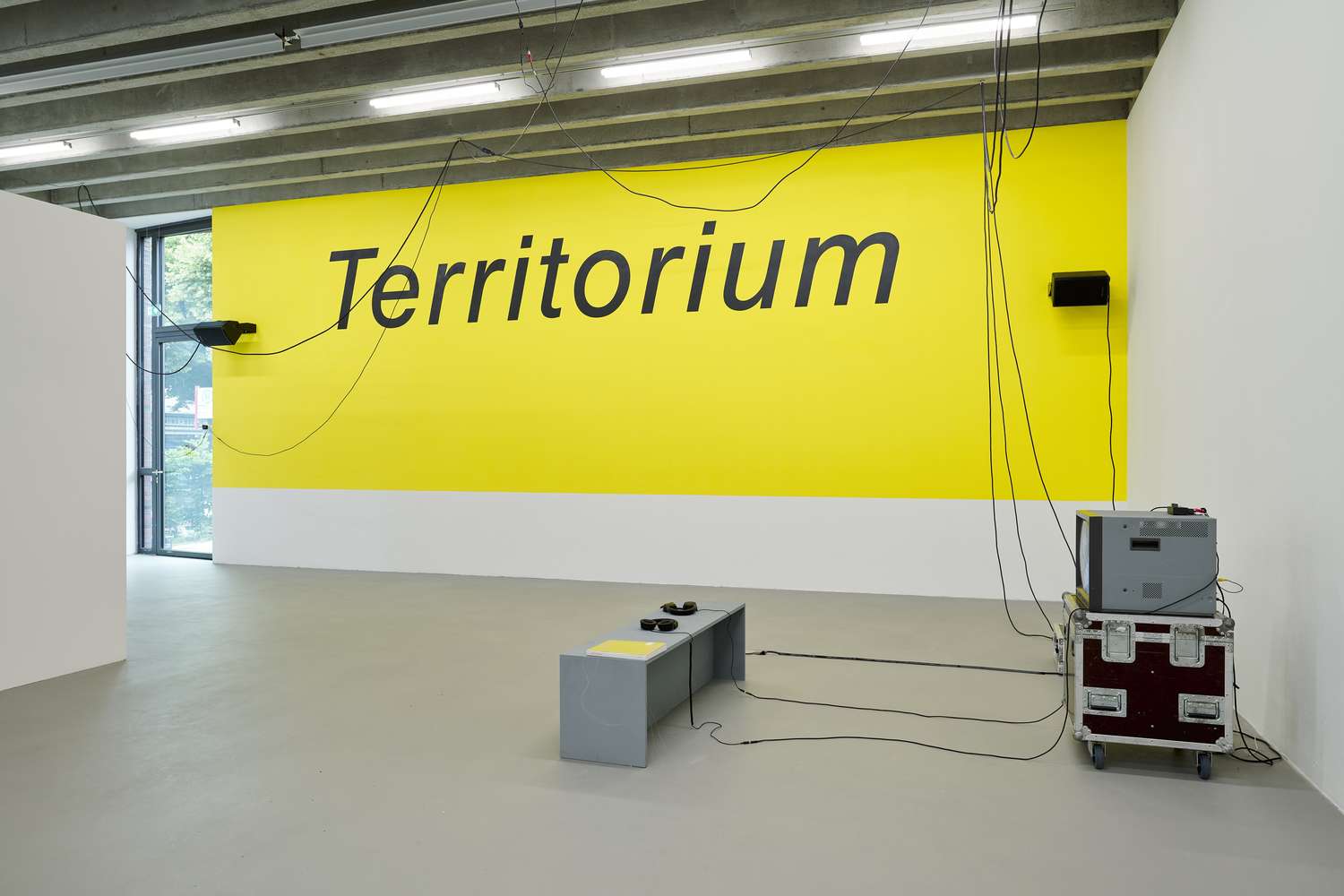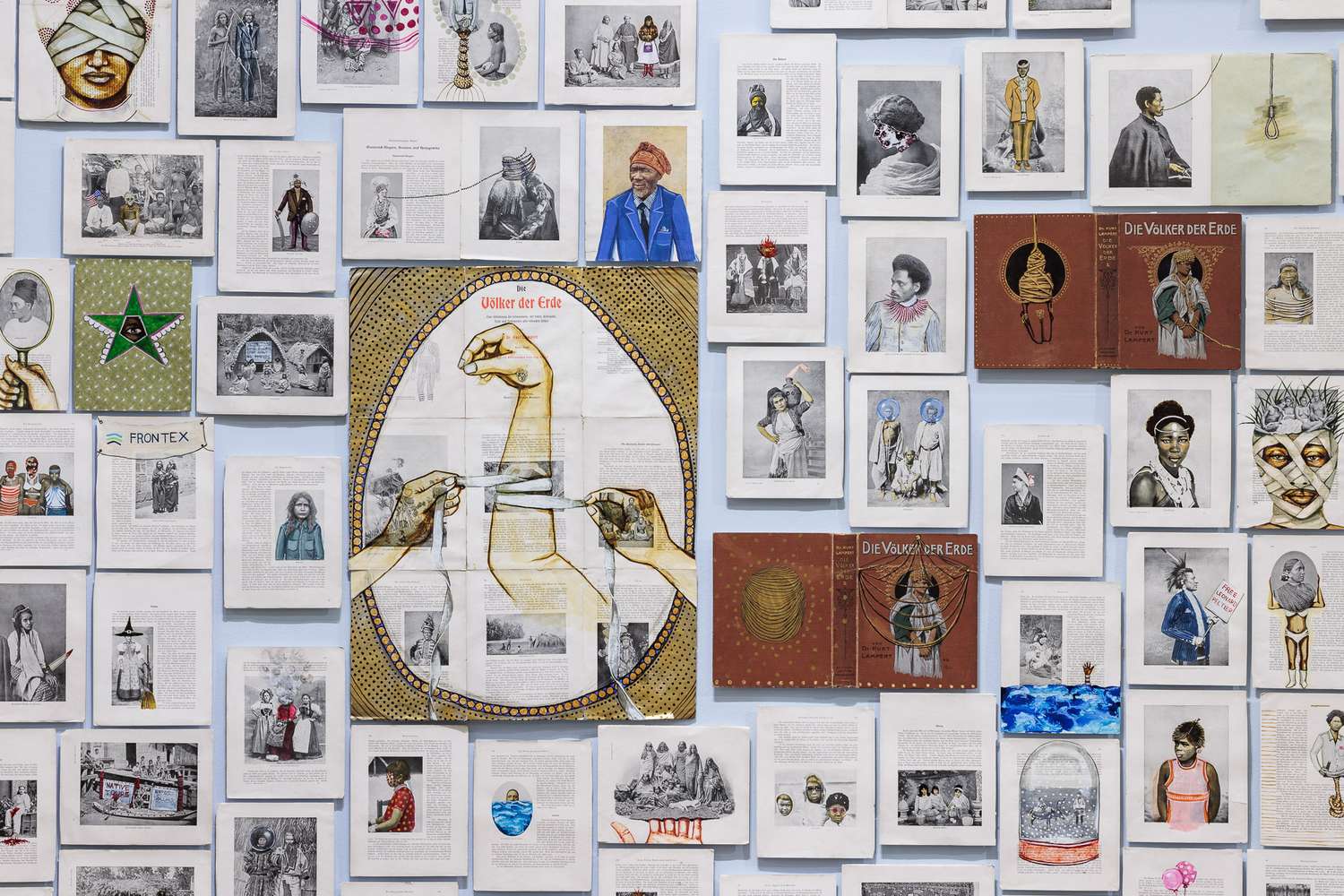7.9. – 14.10.2017
898989
Venue:
- Galerie Melike Bilir, Hamburg
This content is only available in German.
This content is only available in German.
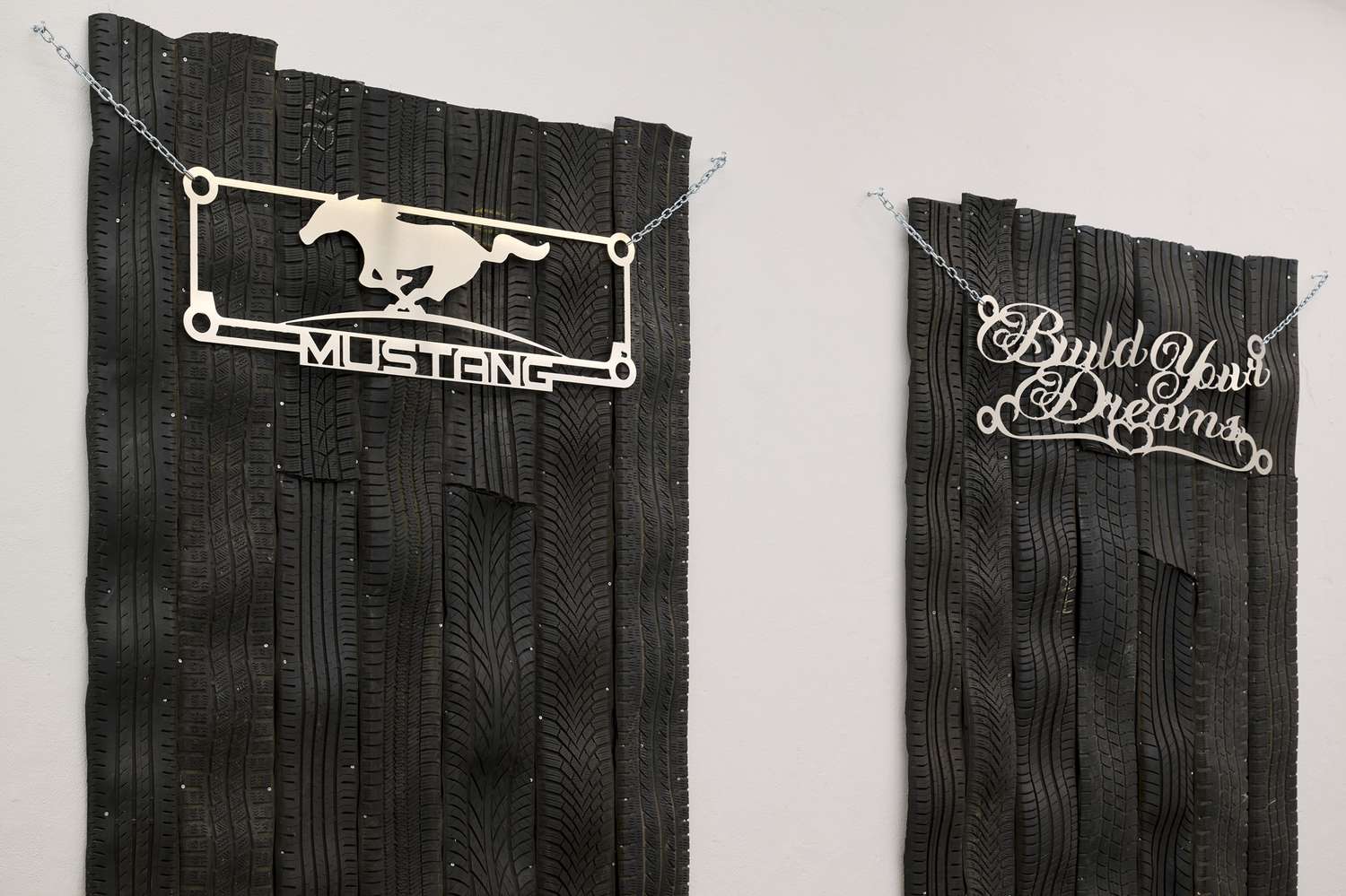
Estefania Morales, I Drive, God Guides ( yo manejo, Dios me guía); photo: Tim Albrecht
From July, 11-13, 2025 (2-8 p.m.), more than 150 graduates from the 2024/25 academic year will be showing their final artistic works in a comprehensive exhibition at the HFBK Hamburg. In addition, all graduation films will be presented in the cinema hall of the Filmhaus at Finkenau 42 as part of Final Cut.

Annika Kahrs, Sunset - Sunrise, 2011, 2 Min, Filmstill; Courtesy of the artist and Produzentengalerie Hamburg
Again, this early summer has a lot to offer – from workshops to lectures and exhibitions. We have put together a small selection for you.
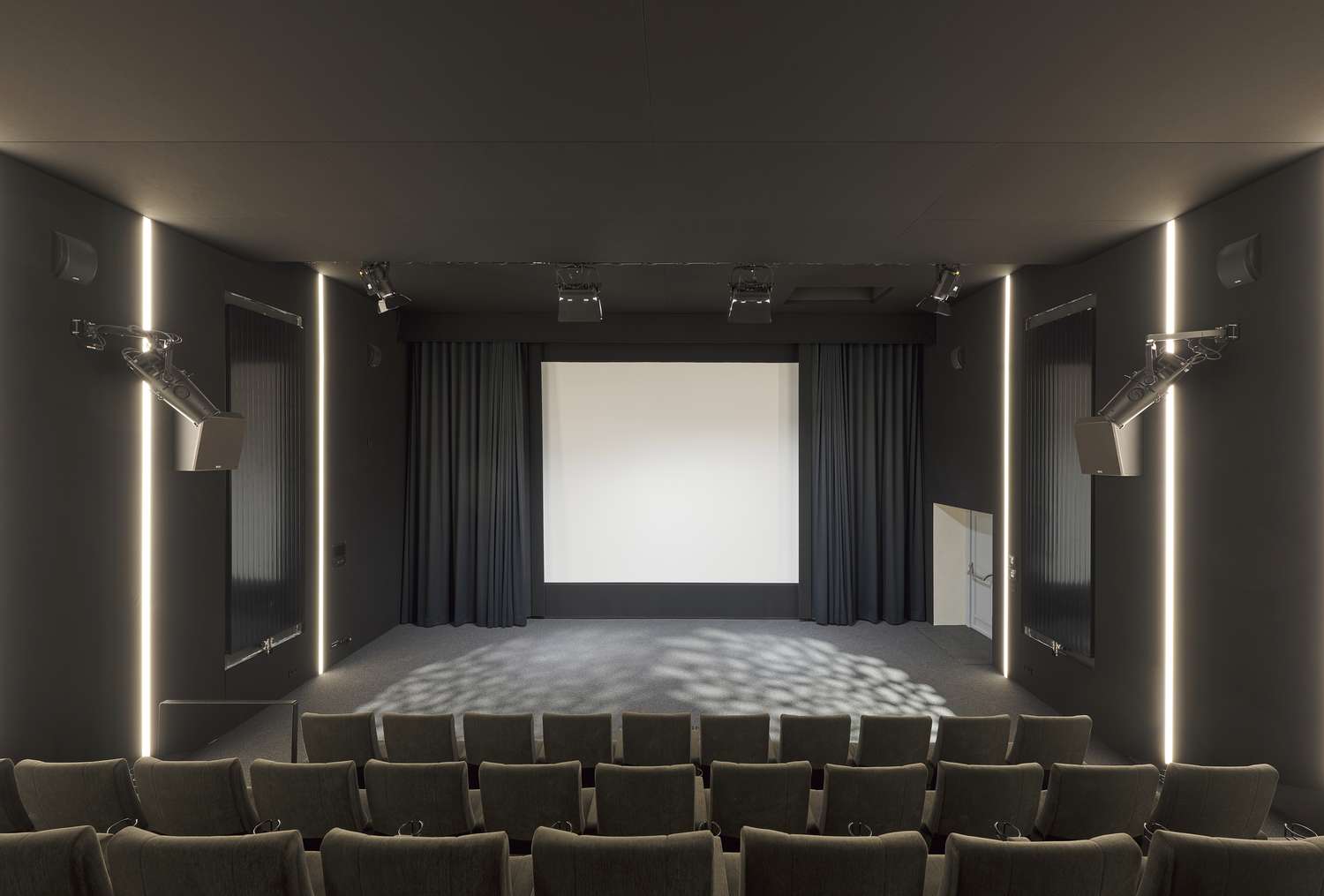
The cinema in the new film house, Finkenau 42; photo: Tim Albrecht
For 60 years, the HFBK Hamburg's film department has stood for radical cinematic independence. But no free expression without connections: Film needs friendship - as a network, as criticism, as resistance. What has become of this film*friendship at the HFBK? We are celebrating 60 years of Cine*Ami*es!
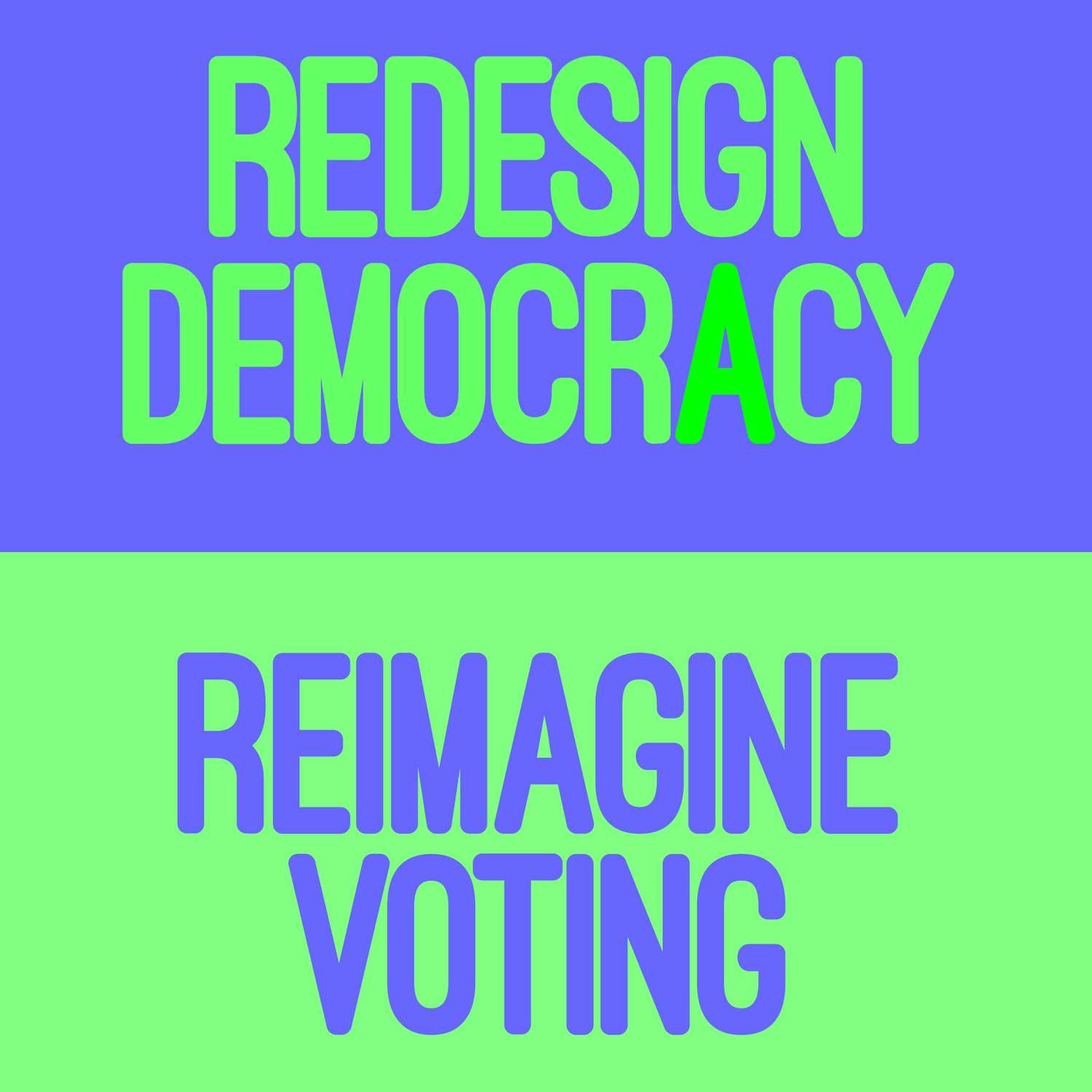
Open Call: Redesign Democracy - Reimagine Voting; graphic design: Konrad Renner
As part of the research project Redesigning Democratic Representation (Re·De·Re), the HFBK Hamburg is organizing a competition for the redesign of ballot boxes and the voting process on the occasion of the 2025 Bundestag elections. What could the ballot boxes of the future look like? All information on the competition and the project can be found here.
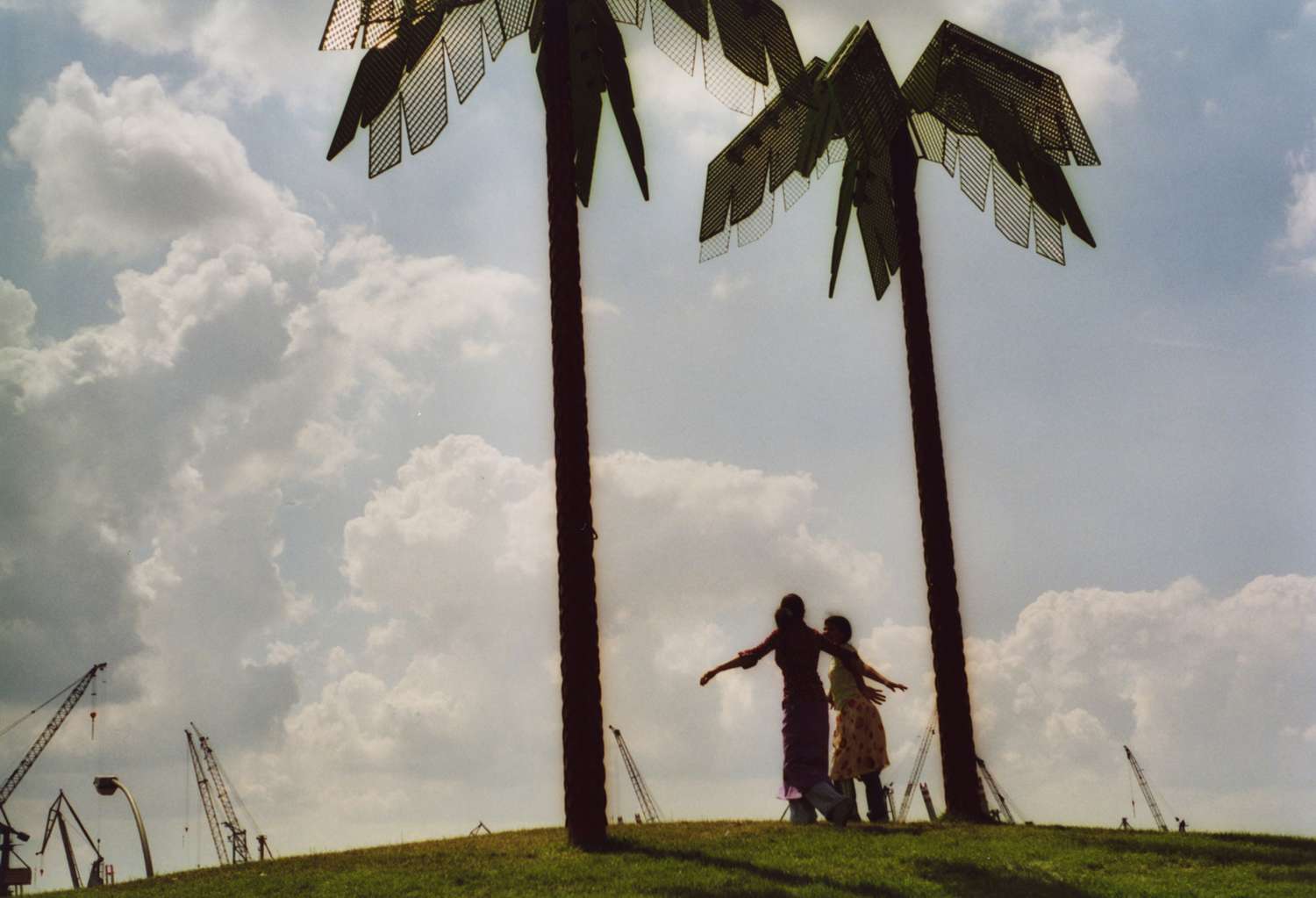
Park Ficiton, Palmen Feliz Nedra, 2003; photo: Margit Czenki/Park Fiction
What is public space? Where does it begin or end? What understanding of the public sphere is it based on? The current issue of Lerchenfeld magazine sheds light on these and other questions
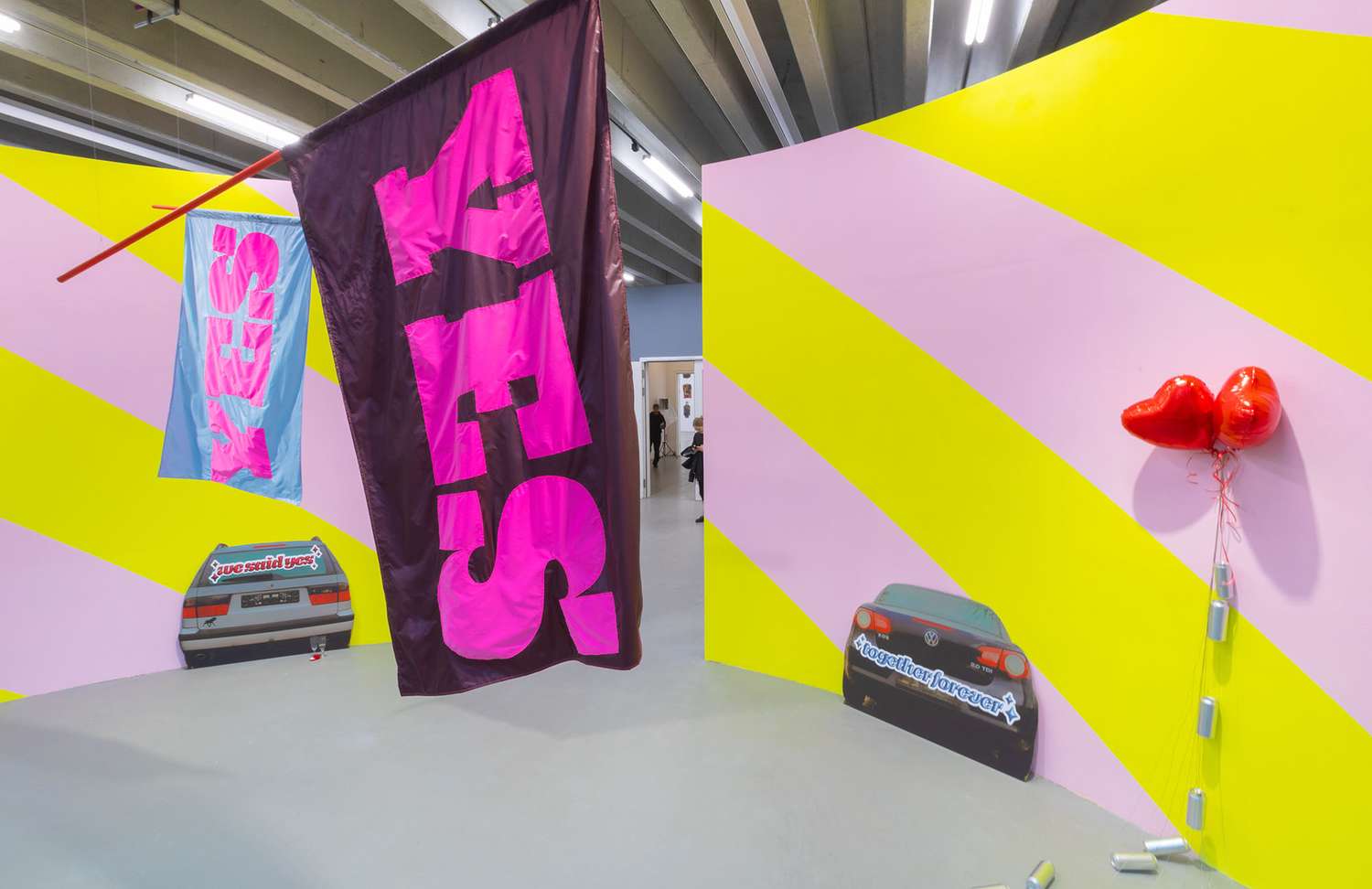
Blick in die von Nadine Droste kuratierte Ausstellung von Master-Studierenden im ICAT der HFBK Hamburg zur Jahresausstellung 2024 (im Vordergrund die Arbeit von Paula Hoffmann und Laura Mahnke); photo: Lukes Engelhardt
The application period for studying at the HFBK Hamburg runs from 4 February to 5 March 2025, 4 p.m. All important information can be found here.
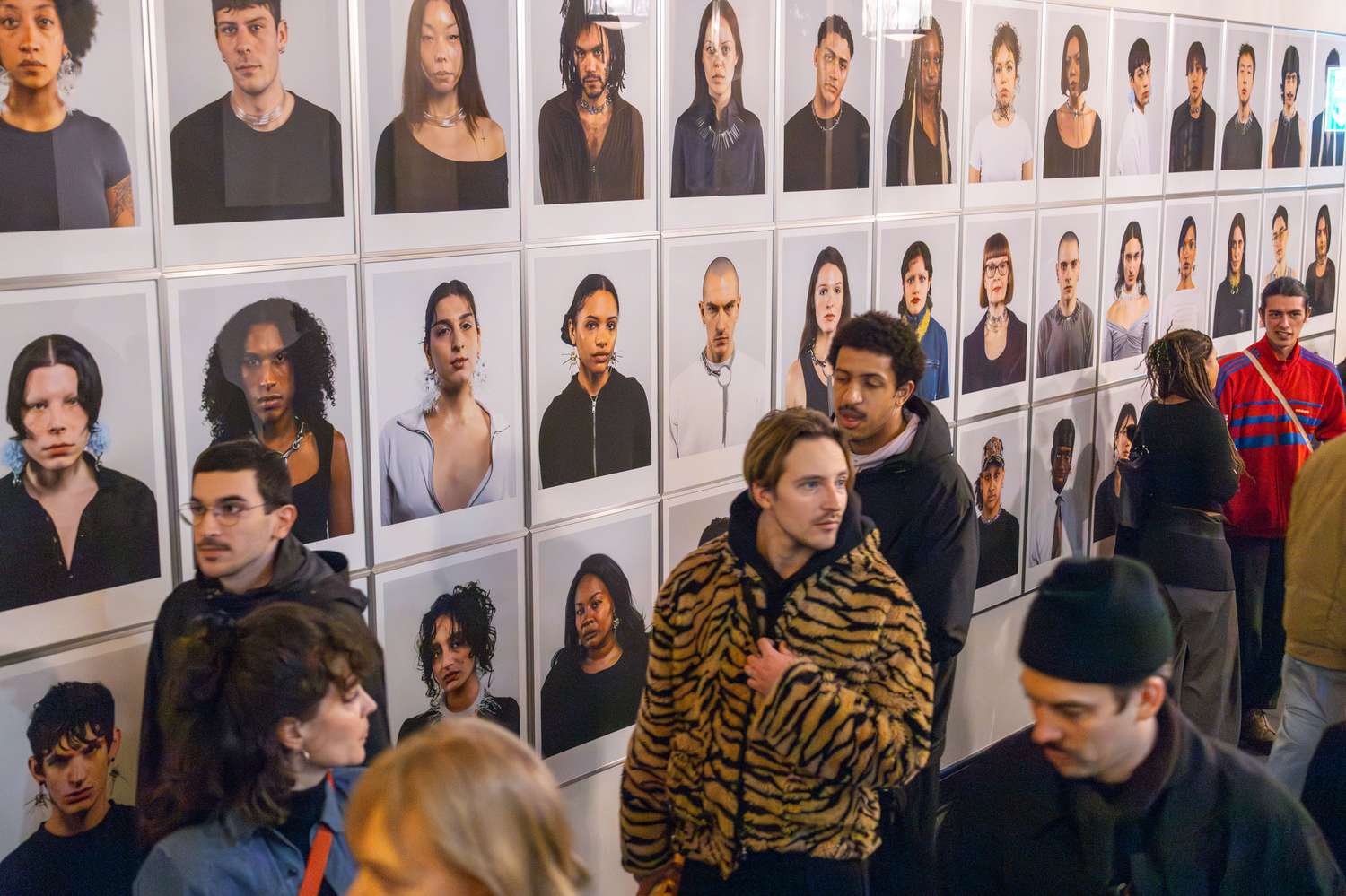
Work by Atu Gelovani at the opening of the Annual Exhibition 2025 at HFBK Hamburg; photo: Lukes Engelhardt
From February 14-16, 2025 (daily 2-8 pm) the students of HFBK Hamburg present their artistic productions from the past year. In addition, the exhibition »Fragile Uncertainties« curated by Nadja Quante, as well as the presentation of exchange students from Goldsmiths, University of London, can be seen at ICAT.
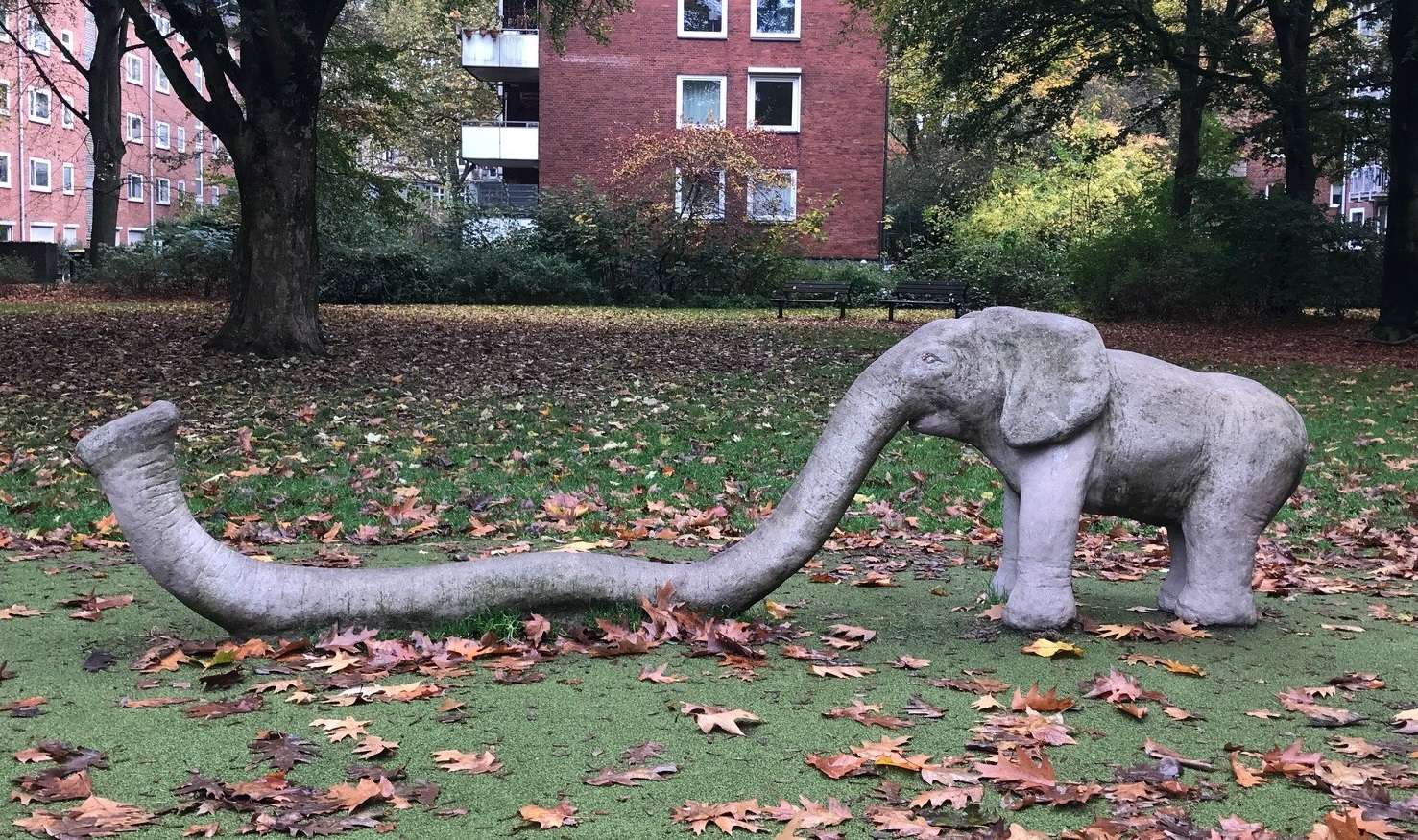
Der Elefant im (öffentlichen) Raum Hamburg
The two-day symposium on December 2 and 3, 2024, is dedicated to current issues and developments in the field of sculpture. It will be accompanied by an exhibition at the HFBK Hamburg's ICAT.
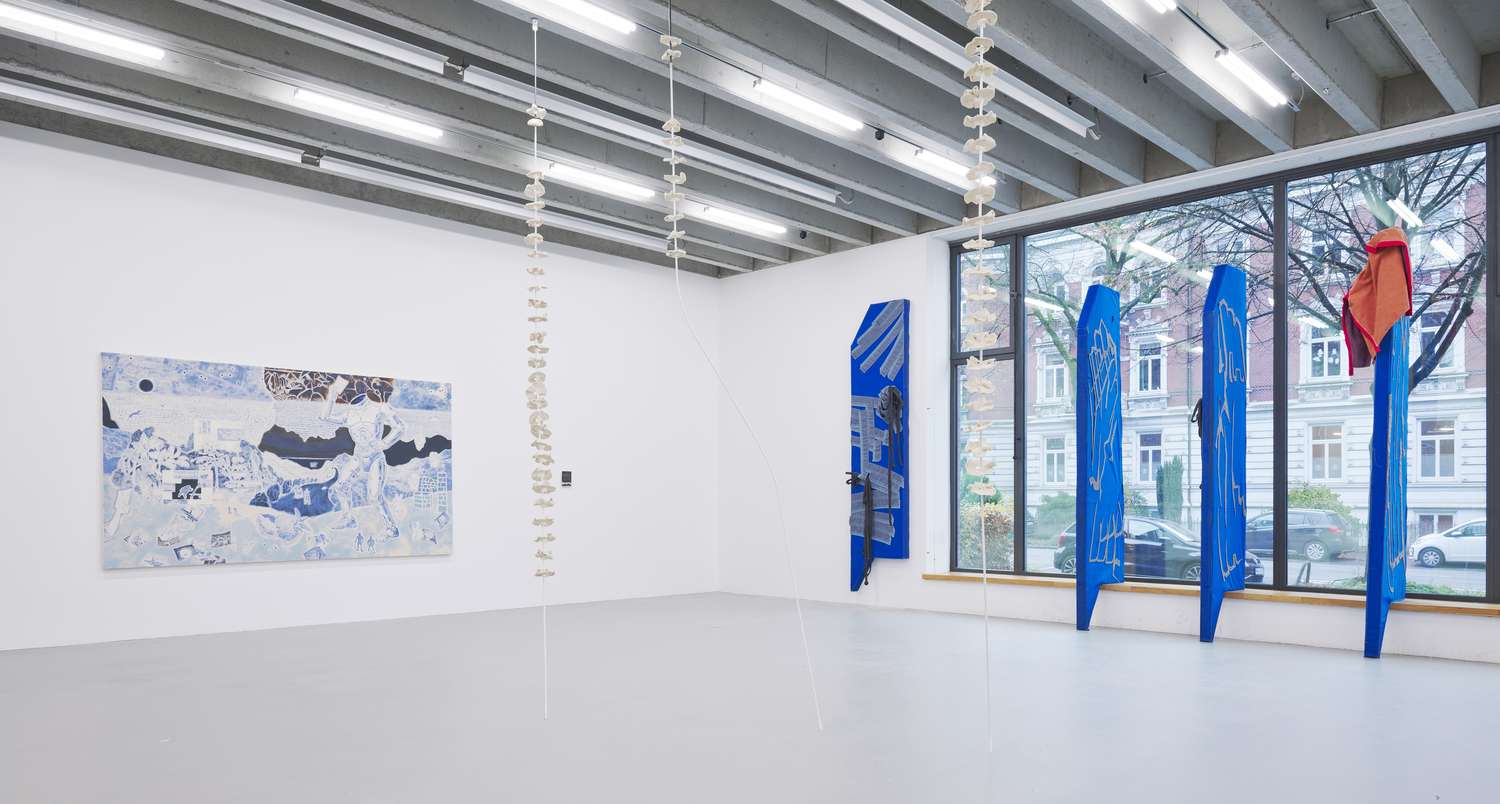
Exhibition view on the occasion of Hiscox Art Prize 2024; photo: Tim Albrecht
The HFBK Hamburg cordially invites to the award ceremony of the Hiscox Art Prize 2024 and to the opening of the exhibition with the nominated artists.

The cinema in the new film house, Finkenau 42; photo: Tim Albrecht
After six decades of outstanding film education at the HFBK Hamburg, we will celebrate the opening of the new film house on Wednesday, October 16, 2024 with the start of the academic year. We will also introduce the new professors and welcome the new students.
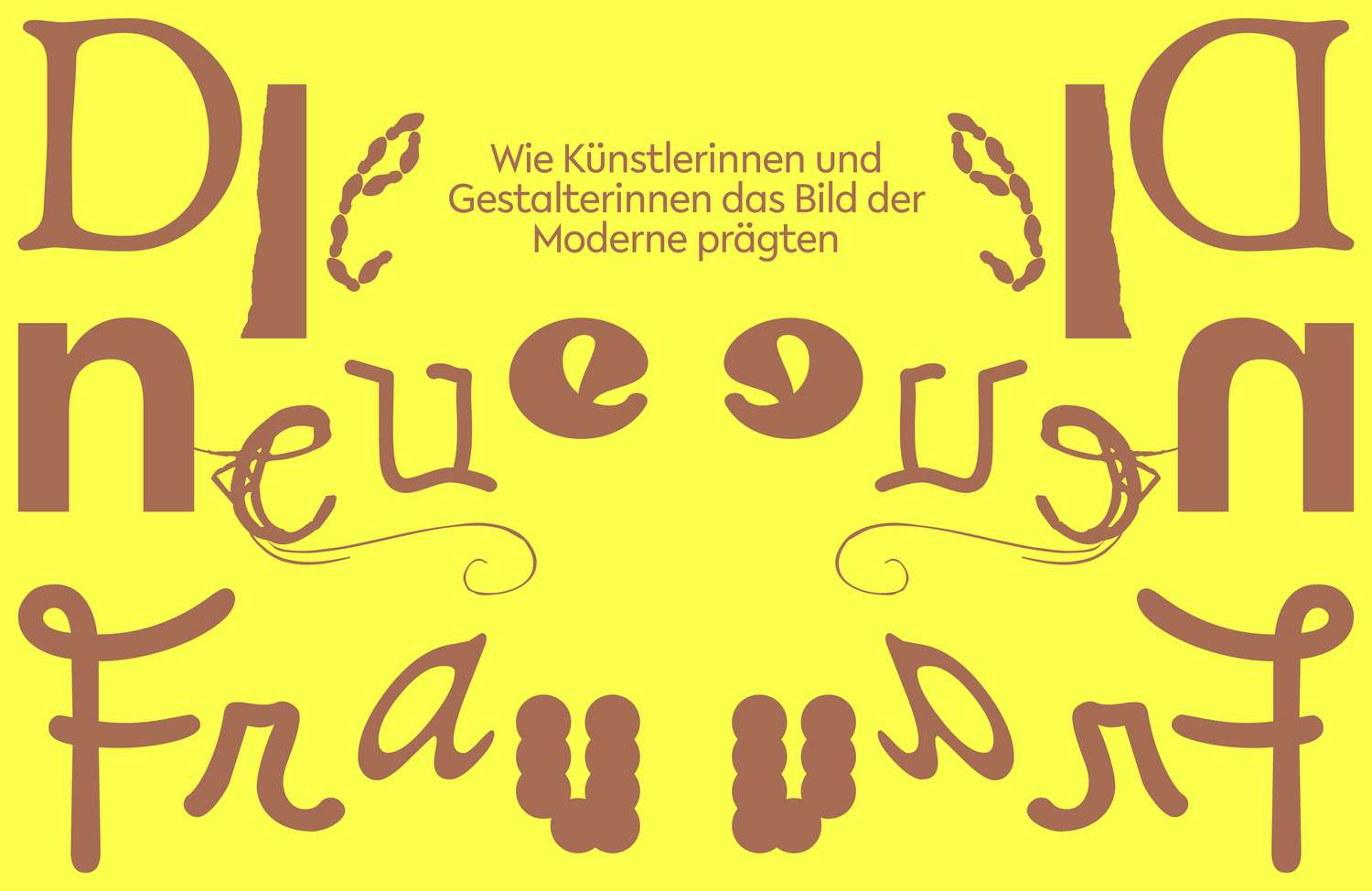
"The New Woman - How Female Artists and Designers shaped the Image of Modernism", graphic by Liudmila Savelyeva, Karla Krey, Amira Mostafa (Klasse Digitale Grafik)
The exhibition "The New Woman - How Female Artists and Designers Shaped the Image of Modernism" presents more than 50 works by 14 selected female artists and designers who studied at the Staatliche Kunstgewerbeschule zu Hamburg, the predecessor institution of the HFBK, from 1907 onwards. At a time when women were still denied access to many other art academies.
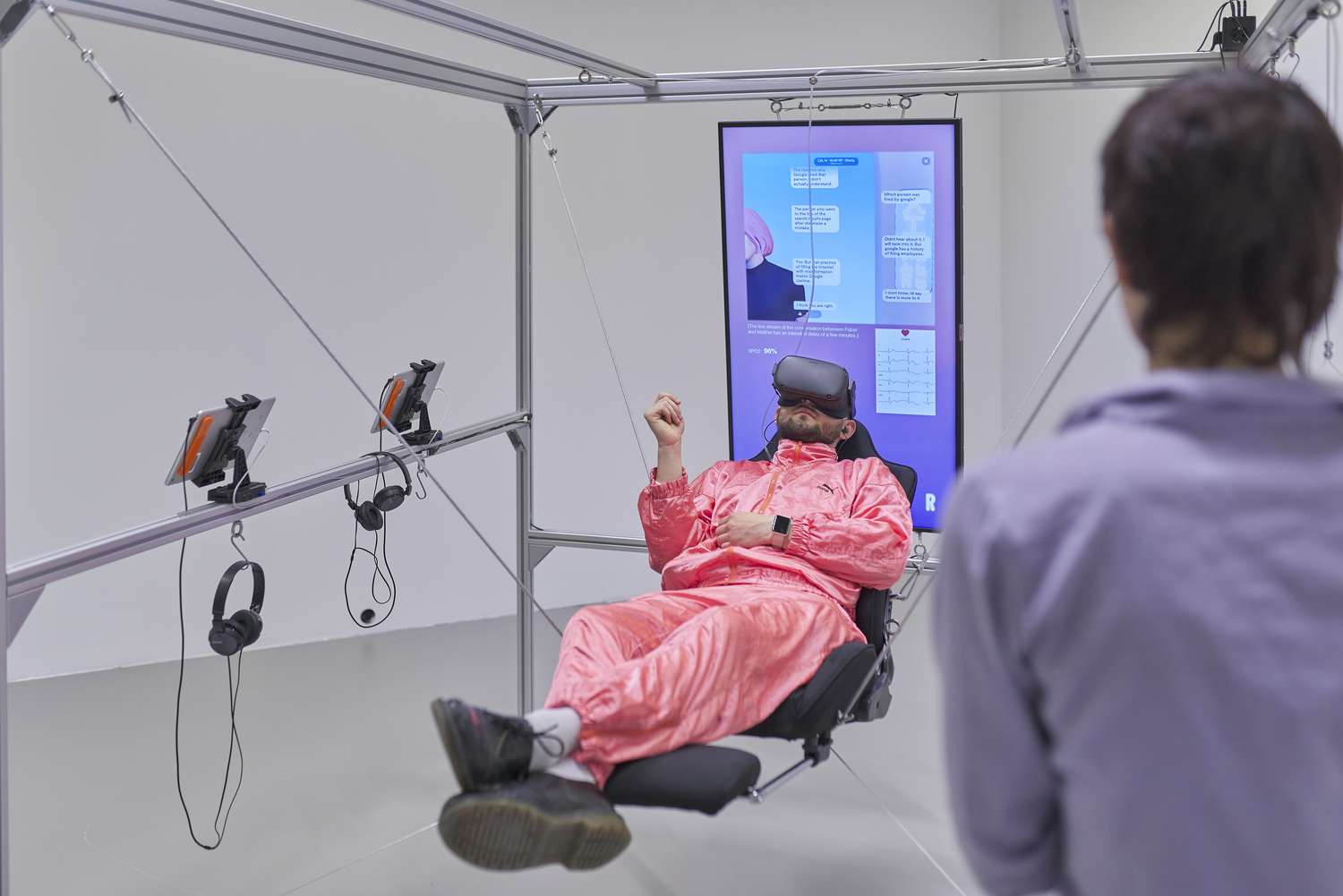
Matthis Frickhœffer in his installation "Framing Electric Dreams" (with Sebastian Kommer) as part of the exhibition "Imaging Health I" 2022 at the ICAT of the HFBK Hamburg; photo: Tim Albrecht
The HFBK Hamburg is the first art academy in Germany to offer a PhD in Art Practice. At the start of the programme, we are looking for artistic doctoral projects that deal with changing health concepts and the diverse social transformation processes from an artistic perspective.
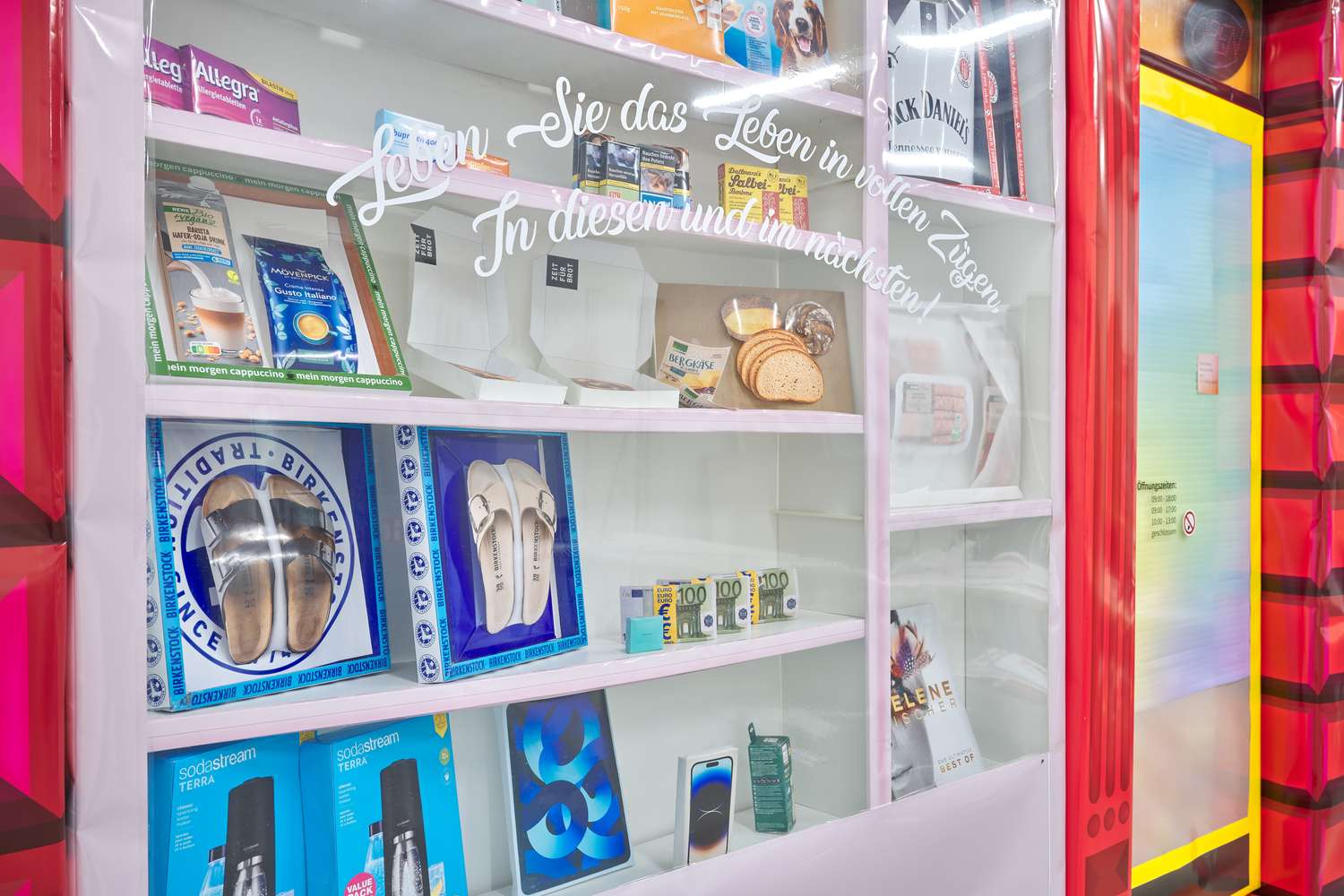
Detail: Installation by Mark Morris; photo: Tim Albrecht
From 12 to 14 July 2024 (2 - 8 p.m.), more than 160 graduates from the 2023/24 academic year will be showing their final artistic works in a comprehensive exhibition at the HFBK Hamburg. In addition, all graduation films will be presented in the new cinema hall of the Filmhaus at Finkenau 42 as part of Final Cut.
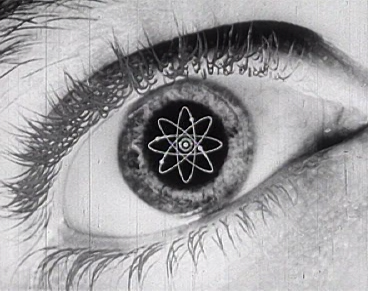
With a symposium, an exhibition, a film programme and a digital publication, the research project conceived by Prof. Hanne Loreck and Vanessa Gravenor examines the "archive" as a form of order with regard to the human body. Which body archives and discourses have become established? What potentials for political-aesthetic resistance and activism could and can emerge?
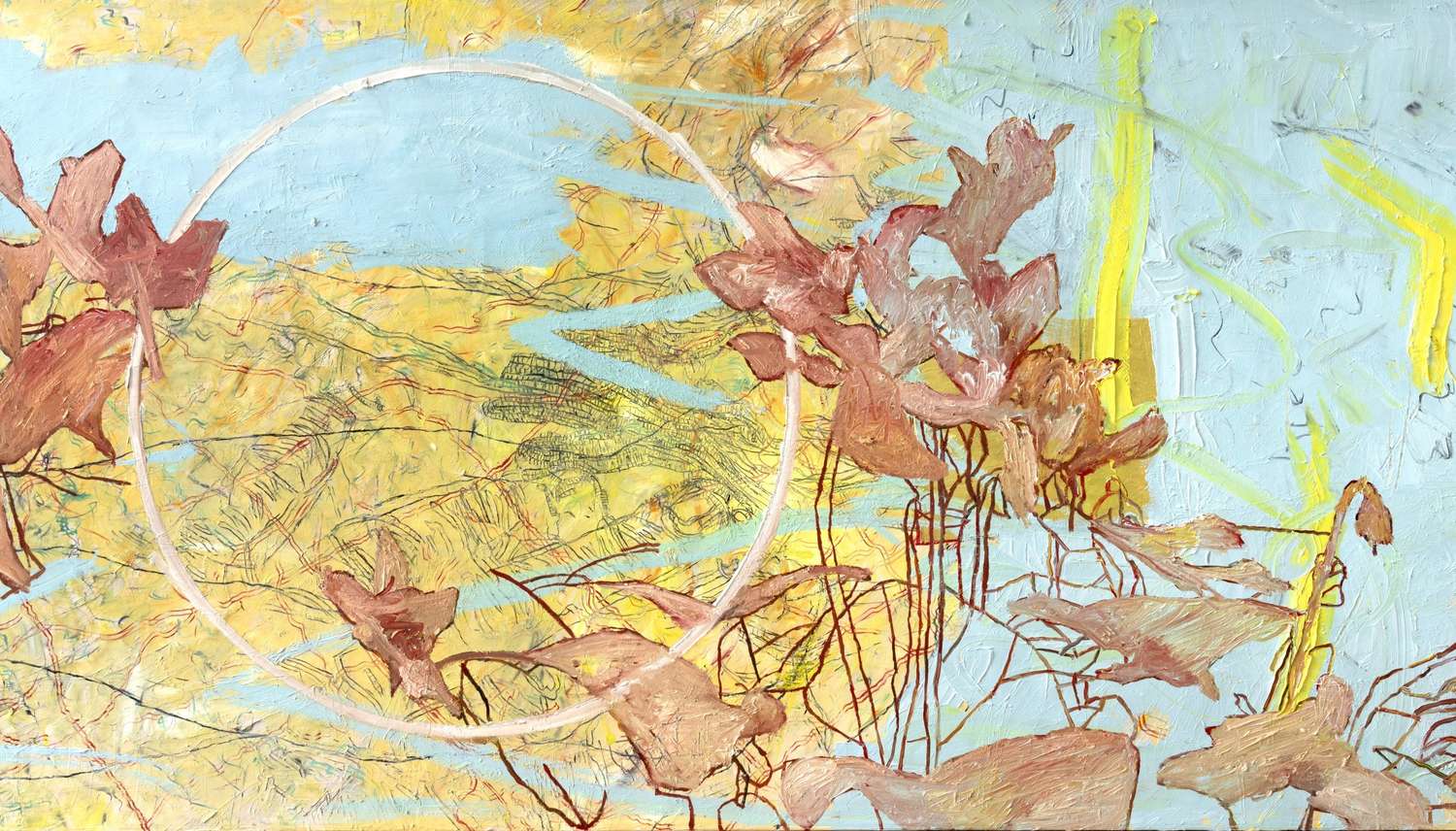
Sharon Poliakine, Untitled, 2023, oil on canvas, detail
On the occasion of a new partnership with the School of Arts at the University of Haifa, the HFBK Hamburg is presenting an exhibition by the artists Birgit Brandis, Sharon Poliakine and HFBK students.
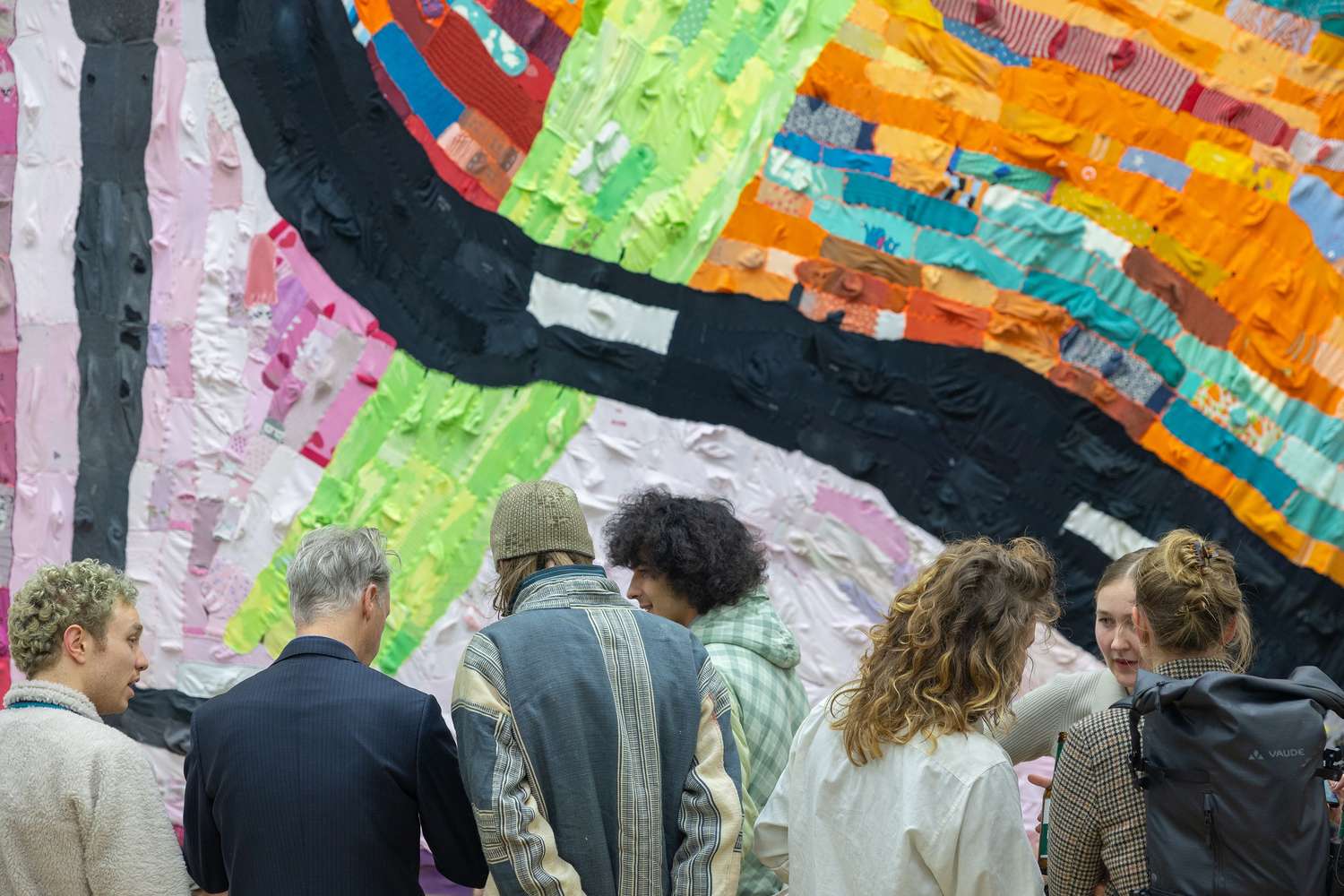
Visitors of the annual exhibition 2024; photo: Lukes Engelhardt
From February 9 -11, 2024 (daily 2-8 pm) the students of HFBK Hamburg present their artistic productions from the past year. In addition, the exhibition »Think & Feel! Speak & Act!« curated by Nadine Droste, as well as the presentation of exchange students from Goldsmiths, University of London, can be seen at ICAT.
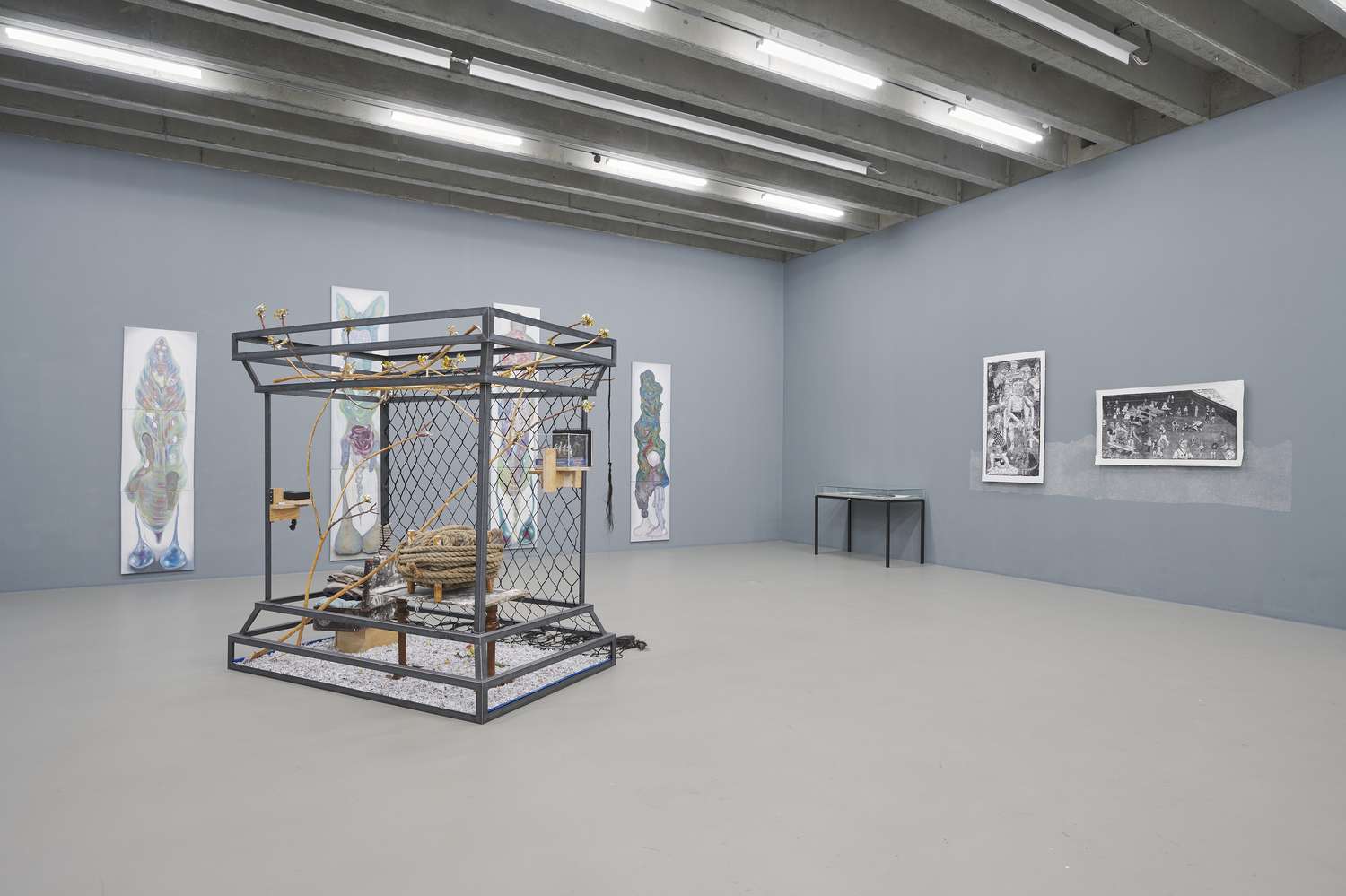
photo: Tim Albrecht
There's a lot going on at the HFBK Hamburg at the end of the year: exhibitions at ICAT, the ASA students' Open Studios in Karolinenstraße, performances in the Extended Library and lectures in the Aula Wartenau.
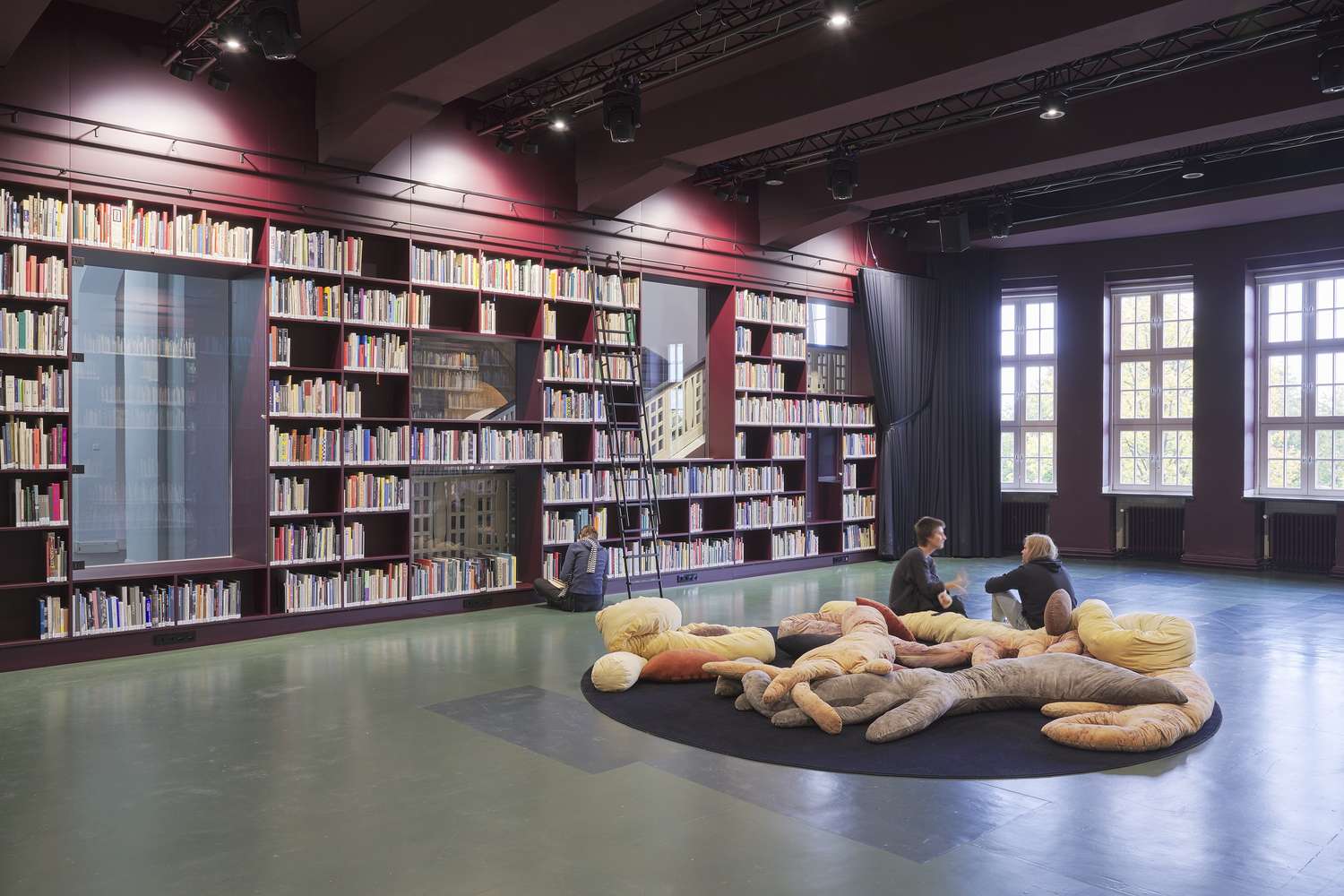
Knowledge is now accessible from anywhere, at any time. In such a scenario, what role(s) can libraries still play? How can they support not only as knowledge archives but also as facilitators of artistic knowledge production? As an example, we present library projects by students and alumni, as well as our new knowledge space: the Extended Library.
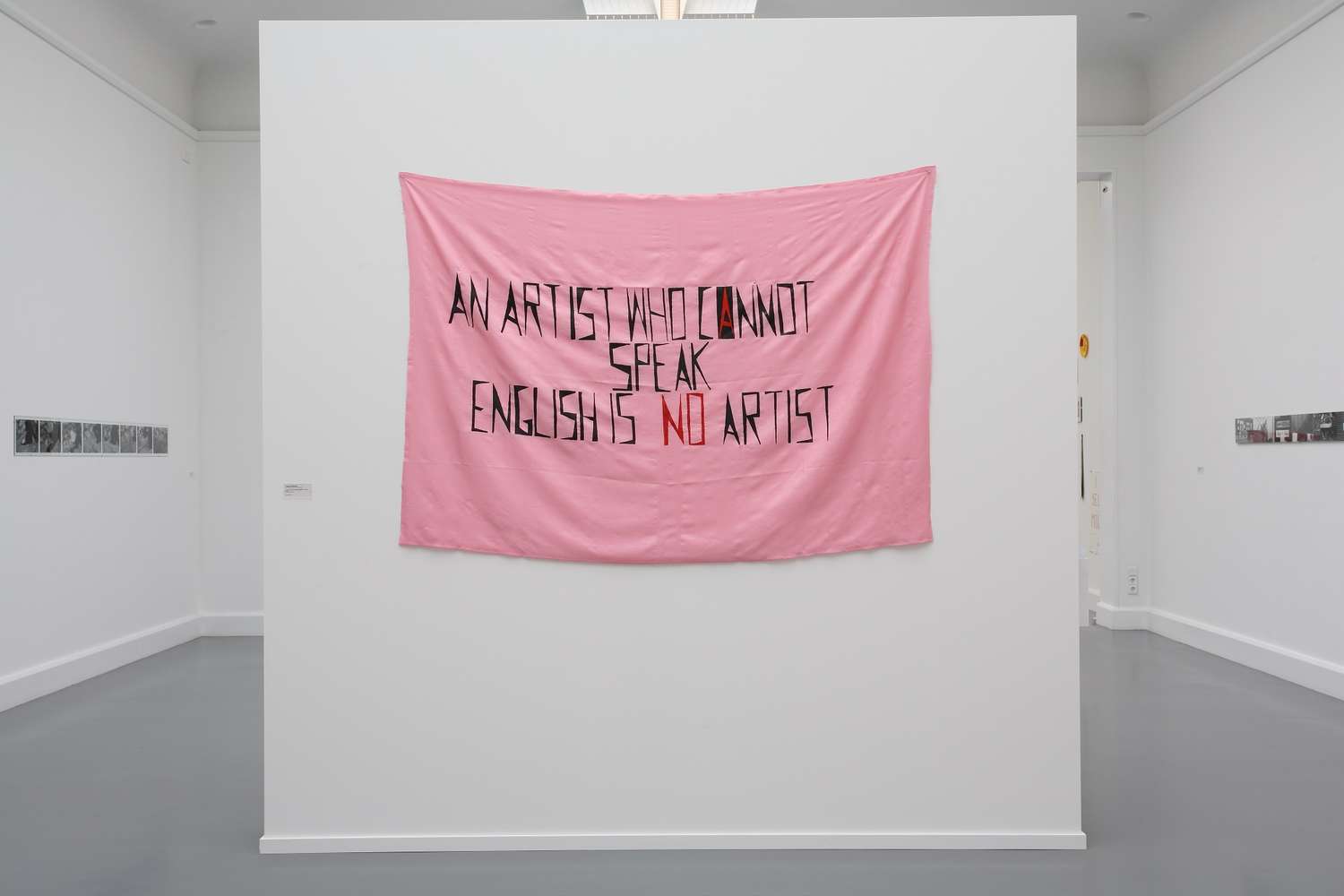
There are currently around 350 international students studying at the HFBK Hamburg, who speak 55 different languages - at least these are the official languages of their countries of origin. A quarter of the teaching staff have an international background. And the trend is rising. But how do we deal productively with the multilingualism of university members in everyday life? What ways of communication can be found? The current Lerchenfeld issue looks at creative solutions for dealing with multilingualism and lets numerous former international students have their say.
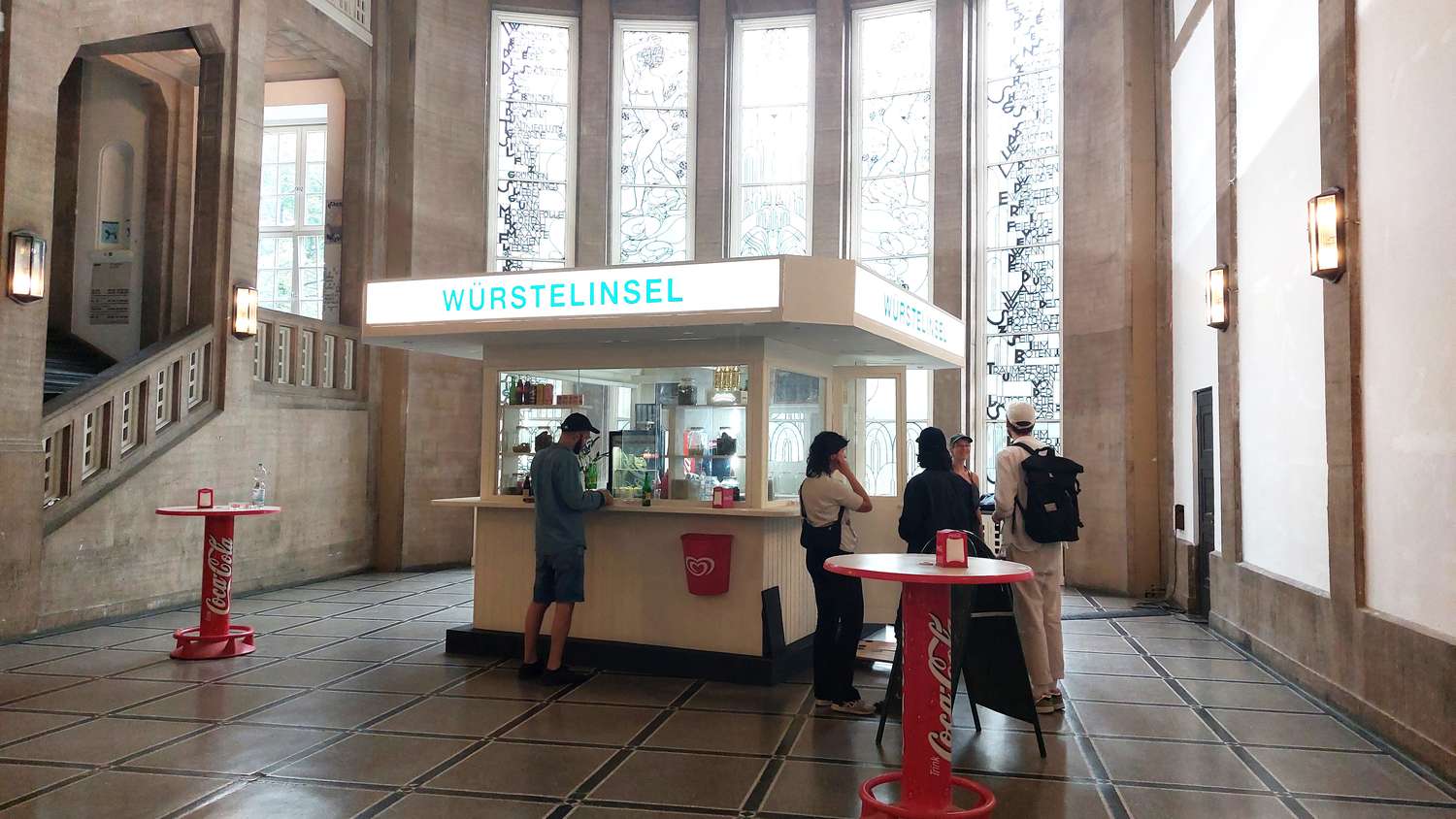
photo: Miriam Schmidt / HFBK
From July 13 to 16, 2023, 165 Bachelor's and Master's graduates of the class of 2022/23 will present their final projects from all areas of study. Under the title Final Cut, all graduation films will be shown on a big screen in the auditorium of the HFBK Hamburg.
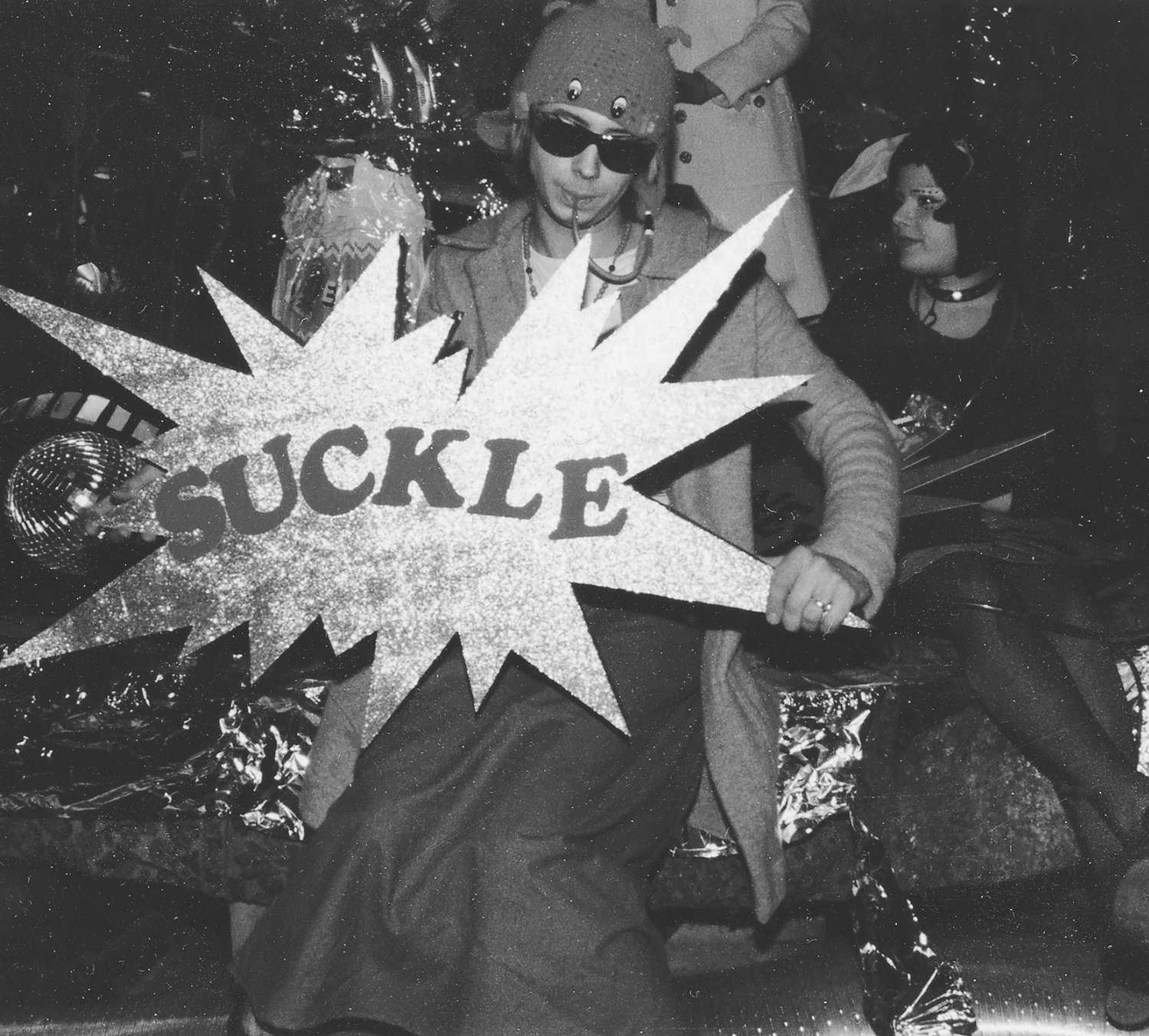
photo: Honey-Suckle Company
Collectives are booming in the art world. And they have been for several decades. For the start of the summer semester 2023, the new issue of the Lerchenfeld Magazine is dedicated to the topic of collective practice in art, presents selected collectives, and also explores the dangers and problems of collective working.
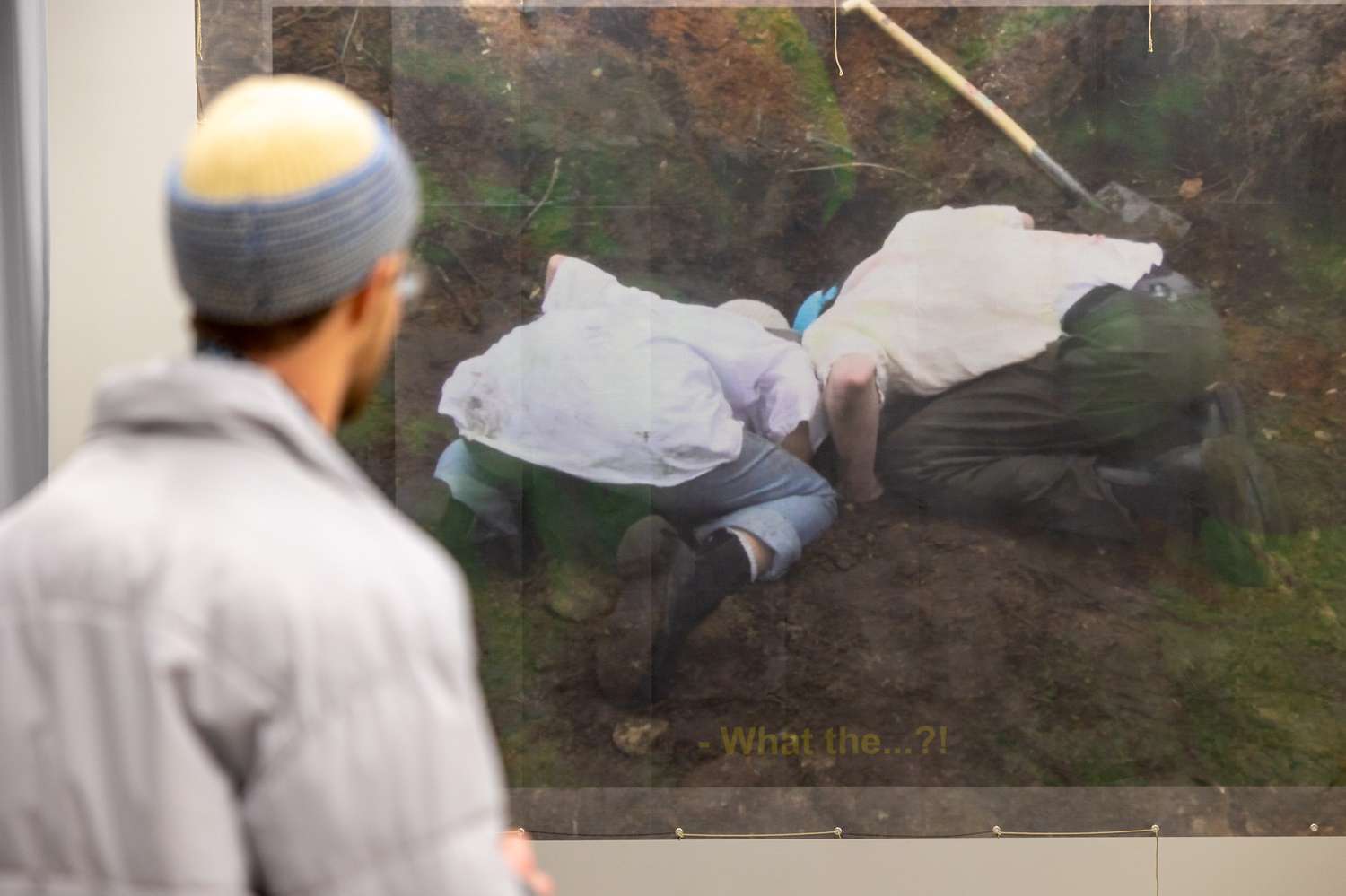
Jahresausstellung 2023, Arbeit von Toni Mosebach / Nora Strömer; photo: Lukes Engelhardt
From February 10-12, students from all departments will present their artistic works at Lerchenfeld 2, Wartenau 15 and AtelierHaus, Lerchenfeld 2a. At ICAT, Tobias Peper, Artistic Director of the Kunstverein Harburger Bahnhof, curates an exhibition with HFBK master students. Also 10 exchange students from Goldsmiths, University of London will show their work there.
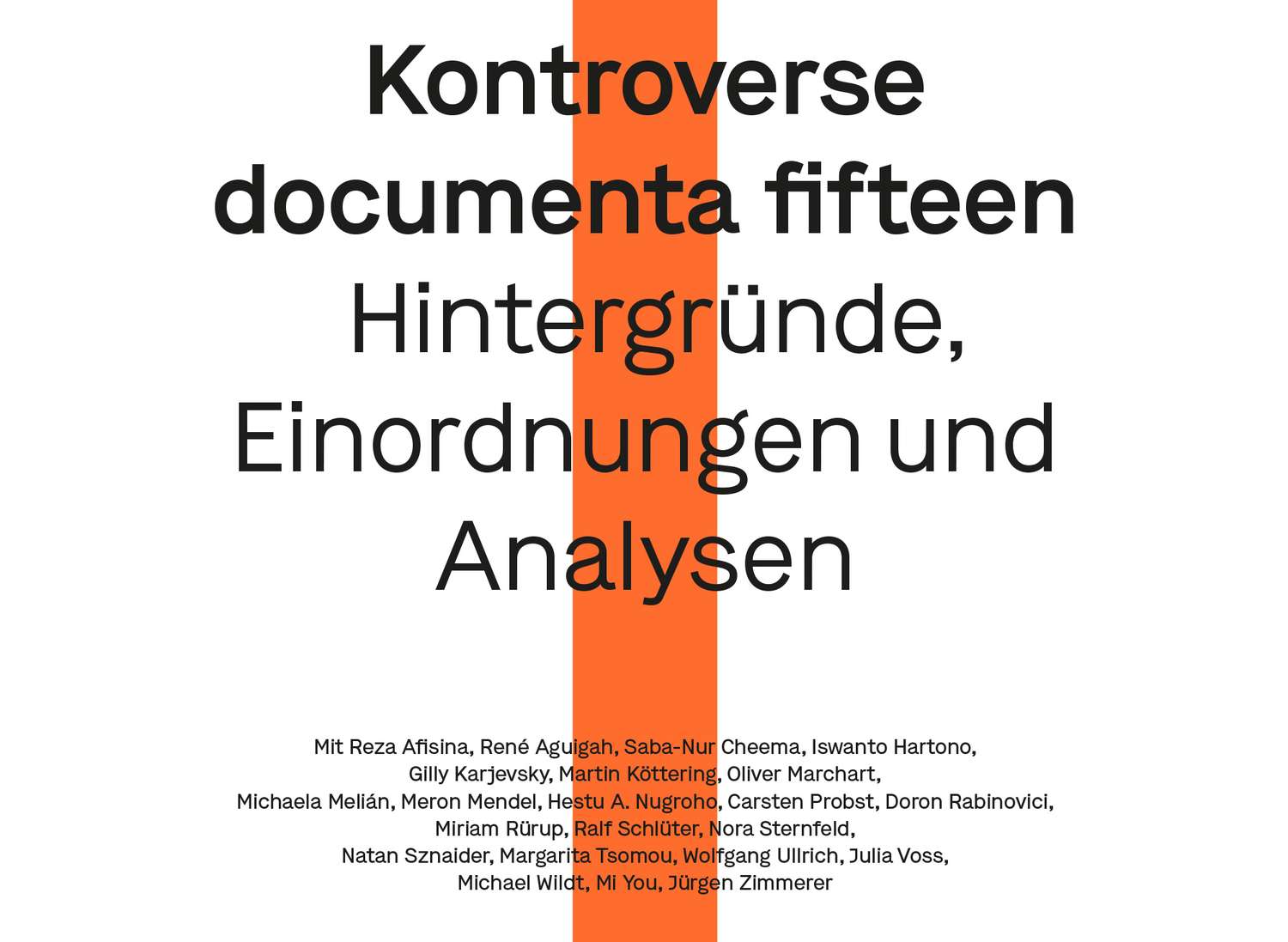
With this symposium on documenta fifteen on the 1st and 2nd of February, the HFBK Hamburg aims to analyze the background and context, foster dialogue between different viewpoints, and enable a debate that explicitly addresses anti-Semitism in the field of art. The symposium offers space for divergent positions and aims to open up perspectives for the present and future of exhibition making.
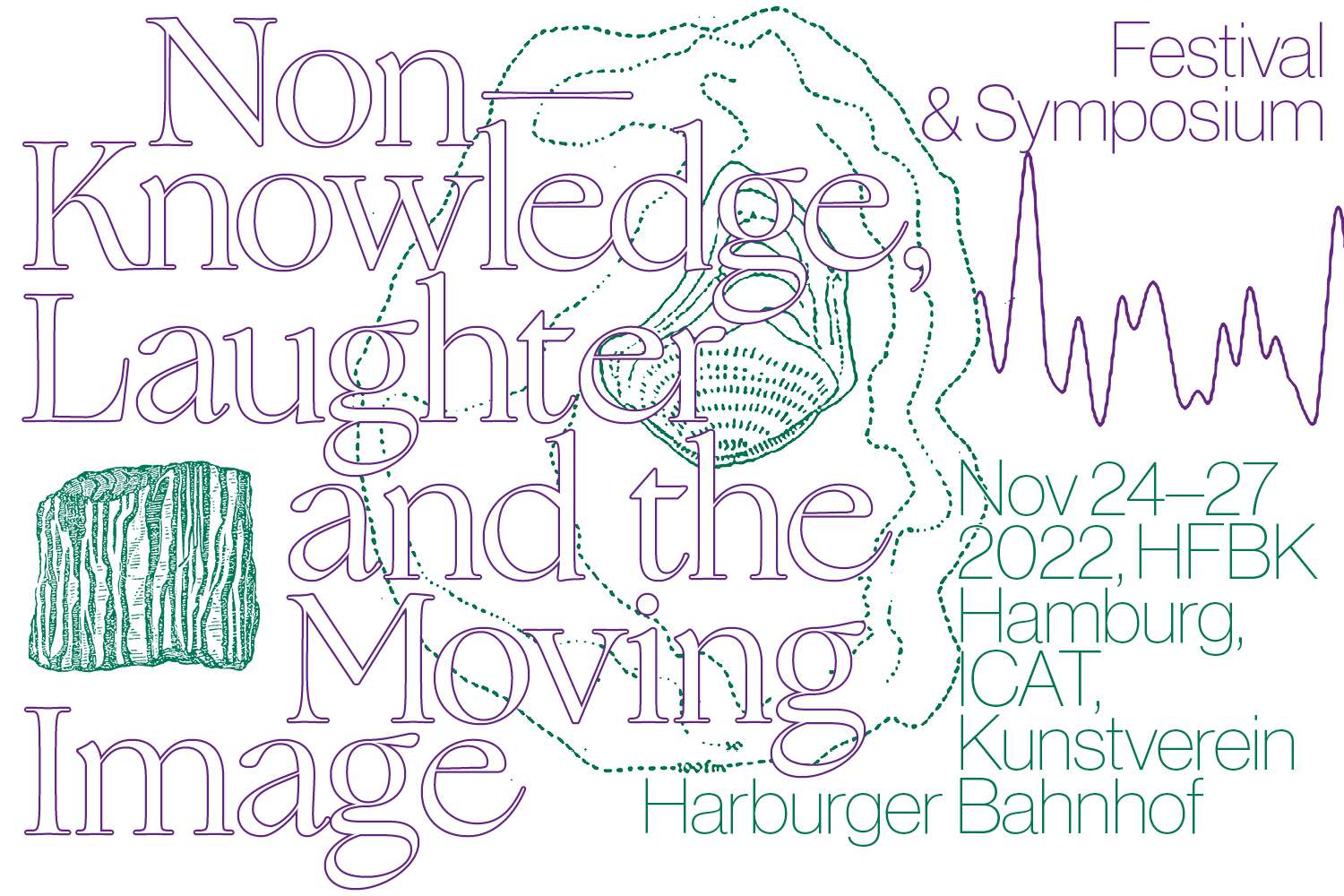
Non-Knowledge, Laughter and the Moving Image, Grafik: Leon Lothschütz
As the final part of the artistic research project, the festival and symposium invite you to screenings, performances, talks, and discussions that explore the potential of the moving images and the (human and non-human) body to overturn our habitual course and change the dominant order of things.
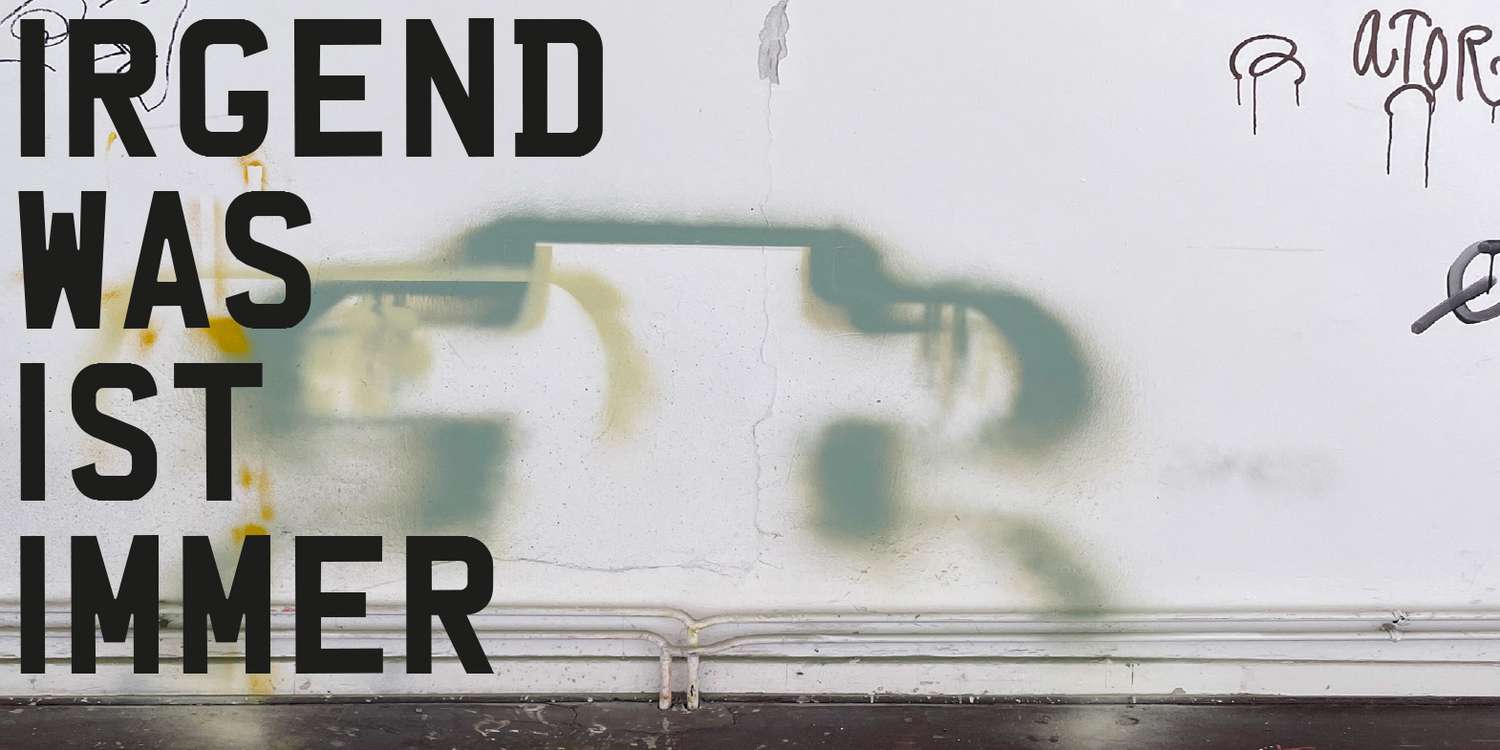
From September 29 to October 23, 2022, Konstantin Grcic (Professor of Industrial Design) will be showing a room-sized installation at ICAT - Institute for Contemporary Art & Transfer at the HFBK Hamburg consisting of objects designed by him and existing, newly assembled objects. At the same time, the space he designed for workshops, seminars and office workstations in the AtelierHaus will be put into operation.
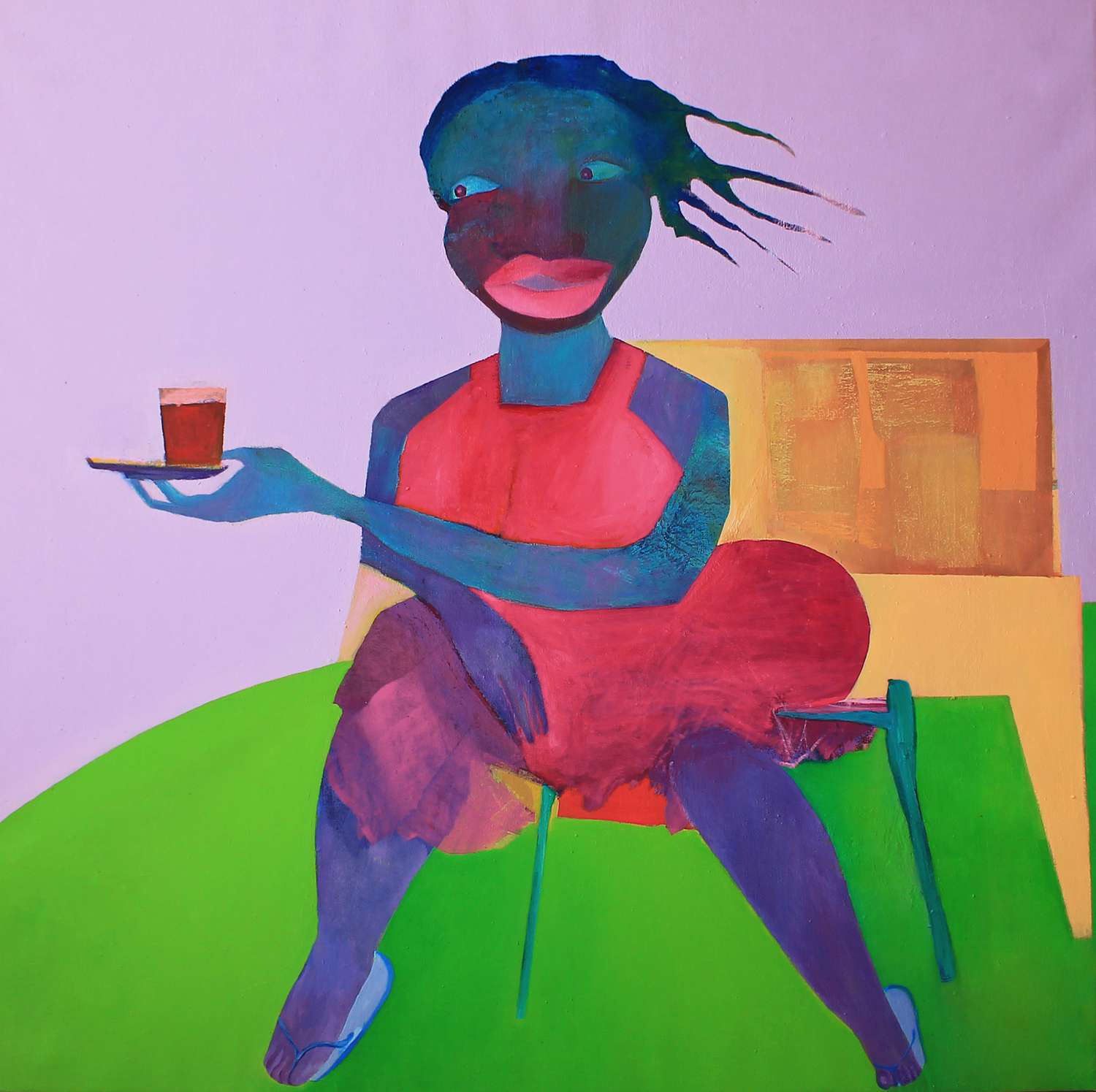
Amna Elhassan, Tea Lady, oil on canvas, 100 x 100 cm
"Every artist is a human being". This statement by Martin Kippenberger, which is as true as it is existentialist (in an ironic rephrasing of the well-known Beuys quote), gets to the heart of the matter in many ways. On the one hand, it reminds us not to look away, to be (artistically) active and to raise our voices. At the same time, it is an exhortation to help those who are in need. And that is a lot of people at the moment, among them many artists. That is why it is important for art institutions to discuss not only art, but also politics.
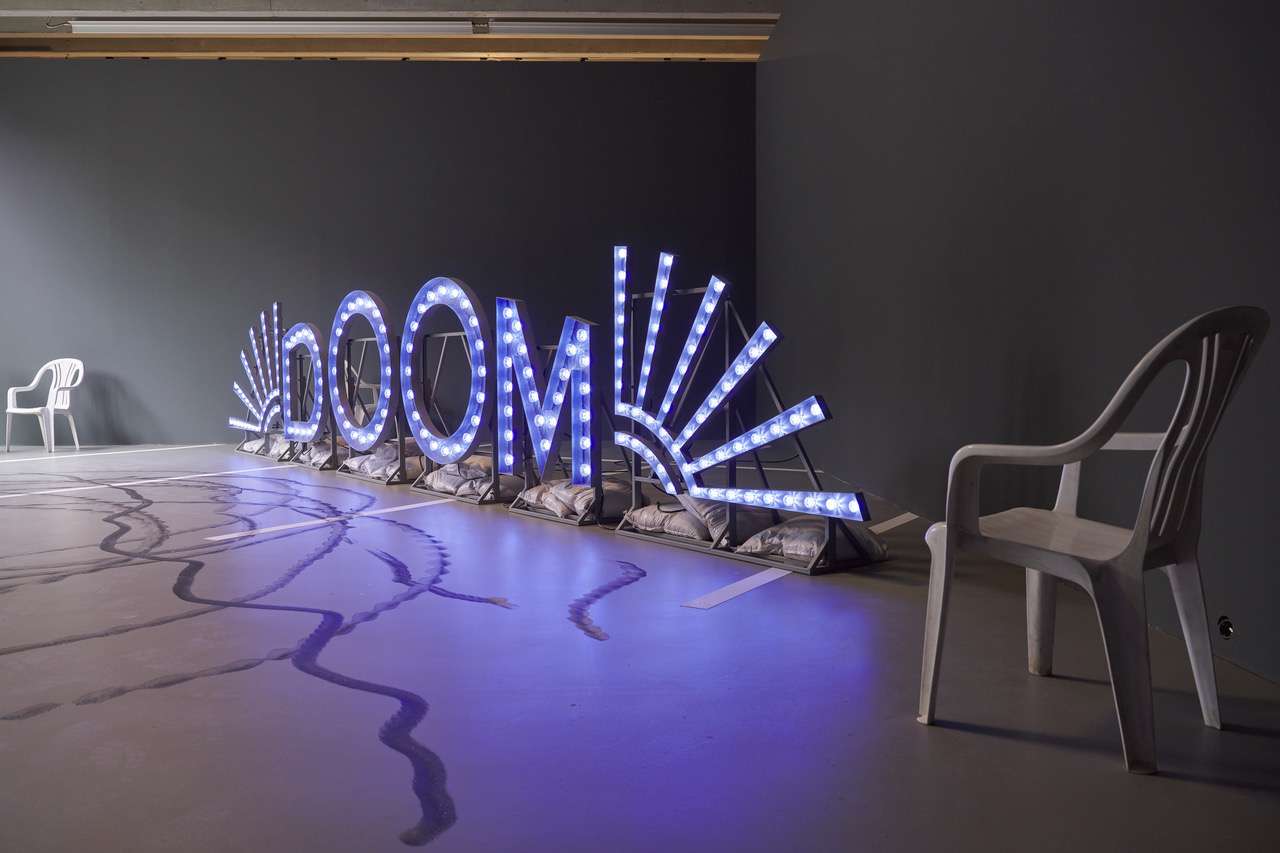
Merlin Reichert, Die Alltäglichkeit des Untergangs, Installation in der Galerie der HFBK; photo: Tim Albrecht
From July 8 to 10, 2022, more than 160 Bachelor’s and Master’s graduates of the class of 2021/22 will present their final projects from all majors. Under the title Final Cut, all graduation films will be shown on a big screen in the auditorium of the HFBK Hamburg. At the same time, the exhibition of the Sudanese guest lecturer Amna Elhassan can be seen in the HFBK gallery in the Atelierhaus.
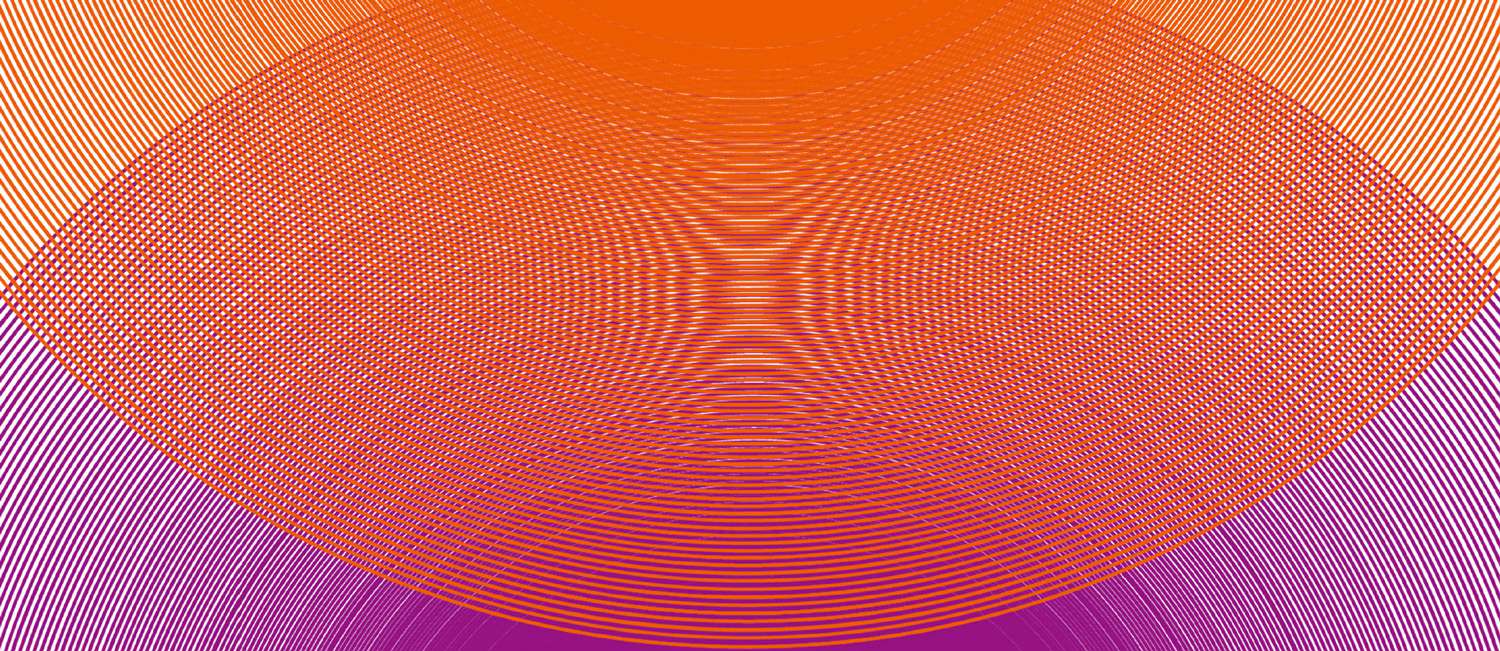
Grafik: Nele Willert, Dennise Salinas
It has been a long time since there has been so much on offer: a three-day congress on the visuality of the Internet brings together international web designers; the research collective freethought discusses the role of infrastructures; and the symposium marking the farewell of professor Michaela Ott takes up central questions of her research work.
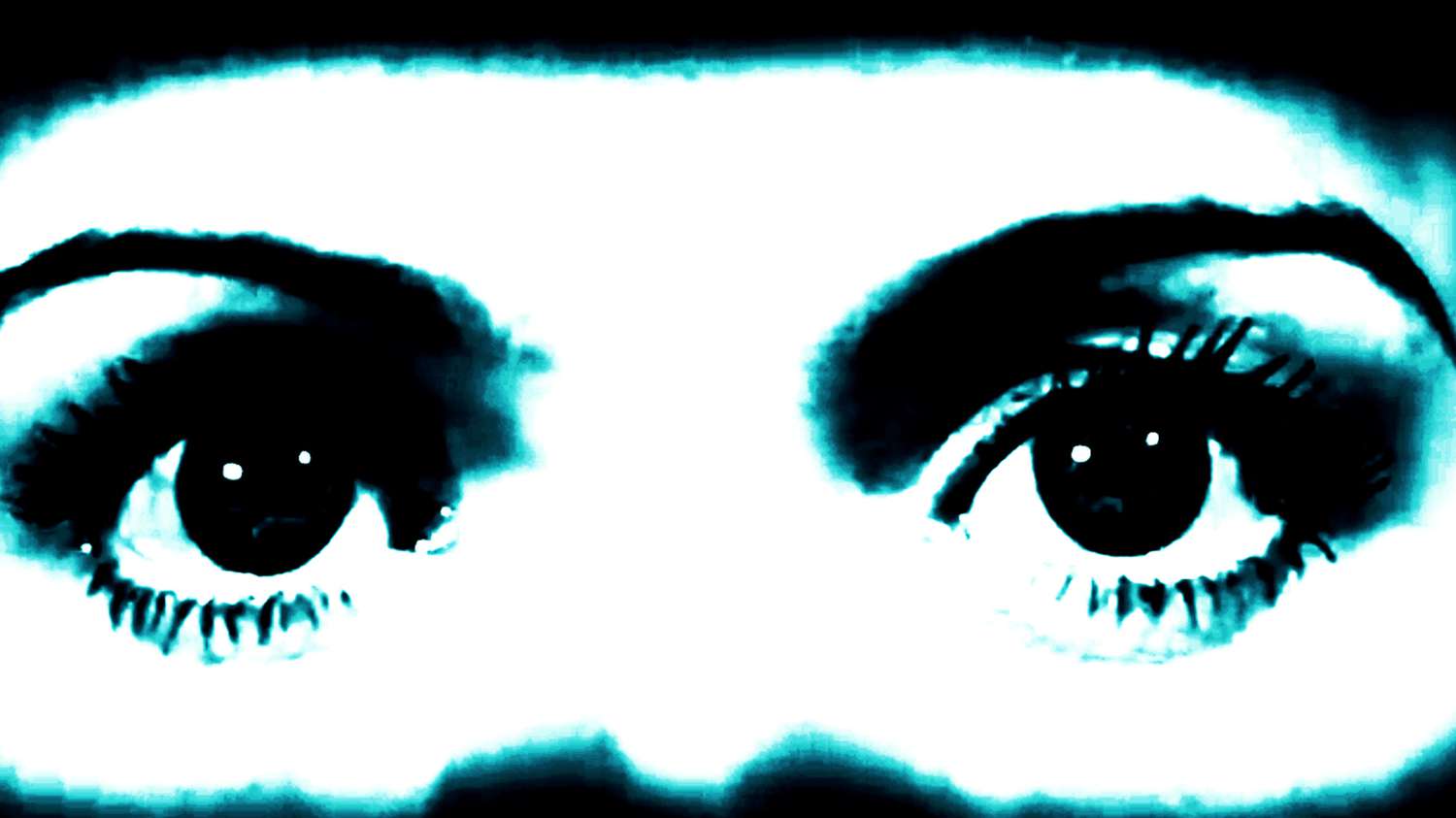
Renée Green. ED/HF, 2017. Film still. Courtesy of the artist, Free Agent Media, Bortolami Gallery, New York, and Galerie Nagel Draxler, Berlin/Cologne/Munich.
The Finkenwerder Art Prize, initiated in 1999 by the Kulturkreis Finkenwerder e.V., has undergone a realignment: As a new partner, the HFBK Hamburg is expanding the prize to include the aspect of promoting young artists and, starting in 2022, will host the exhibition of the award winners in the HFBK Gallery. This year's Finkenwerder Art Prize will be awarded to the US artist Renée Green. HFBK graduate Frieda Toranzo Jaeger receives the Finkenwerder Art Prize for recent graduates.
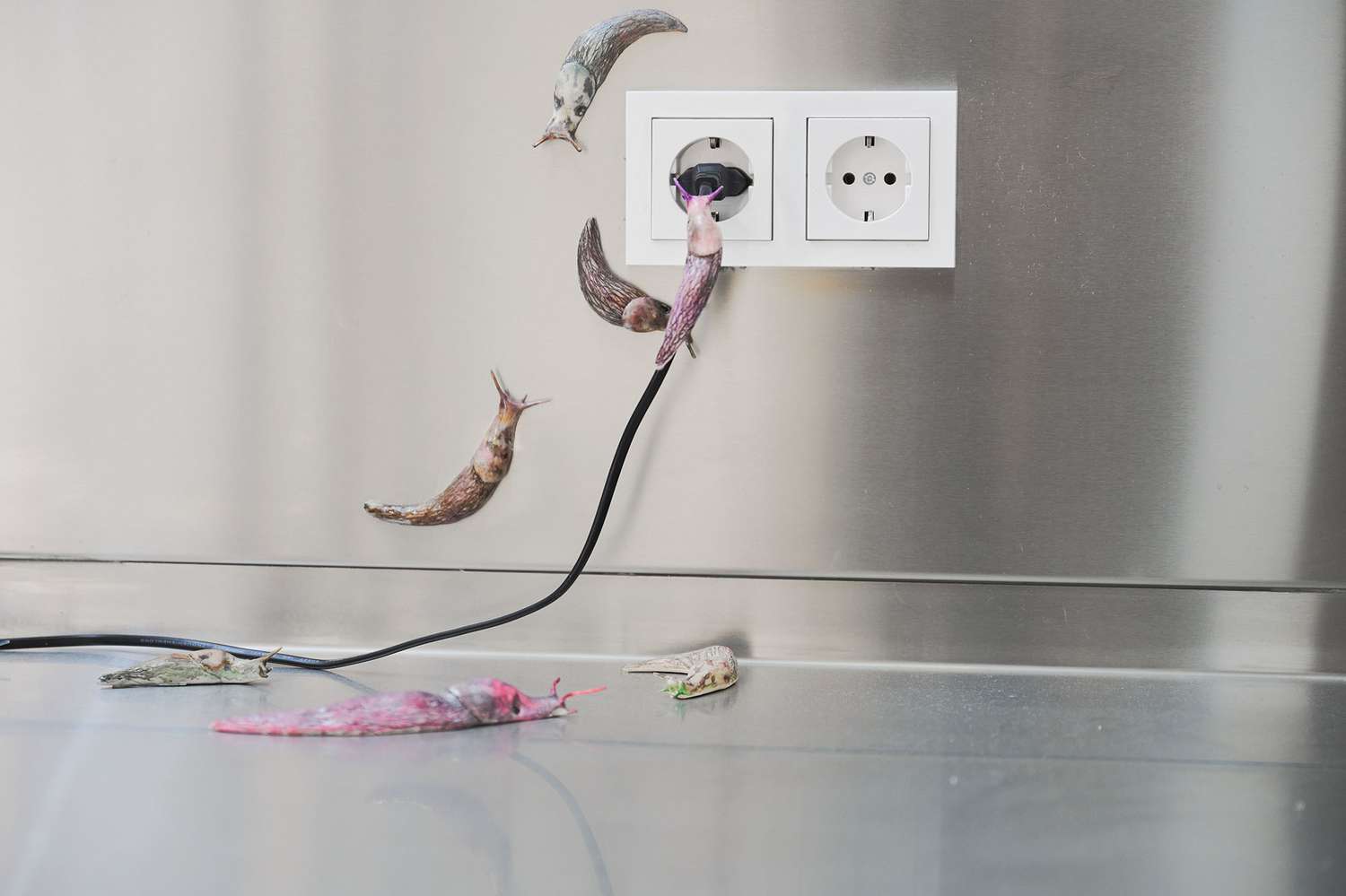
Amanda F. Koch-Nielsen, Motherslugger; photo: Lukas Engelhardt
Im Bewusstsein einer ausstehenden fundamentalen gesellschaftlichen Transformation und der nicht unwesentlichen Schrittmacherfunktion, die einem Ort der künstlerischen Forschung und Produktion hierbei womöglich zukommt, hat sich die HFBK Hamburg auf den Weg gemacht, das Thema strategisch wie konkret pragmatisch für die Hochschule zu entwickeln. Denn wer, wenn nicht die Künstler*innen sind in ihrer täglichen Arbeit damit befasst, das Gegebene zu hinterfragen, genau hinzuschauen, neue Möglichkeiten, wie die Welt sein könnte, zu erkennen und durchzuspielen, einem anderen Wissen Gestalt zu geben
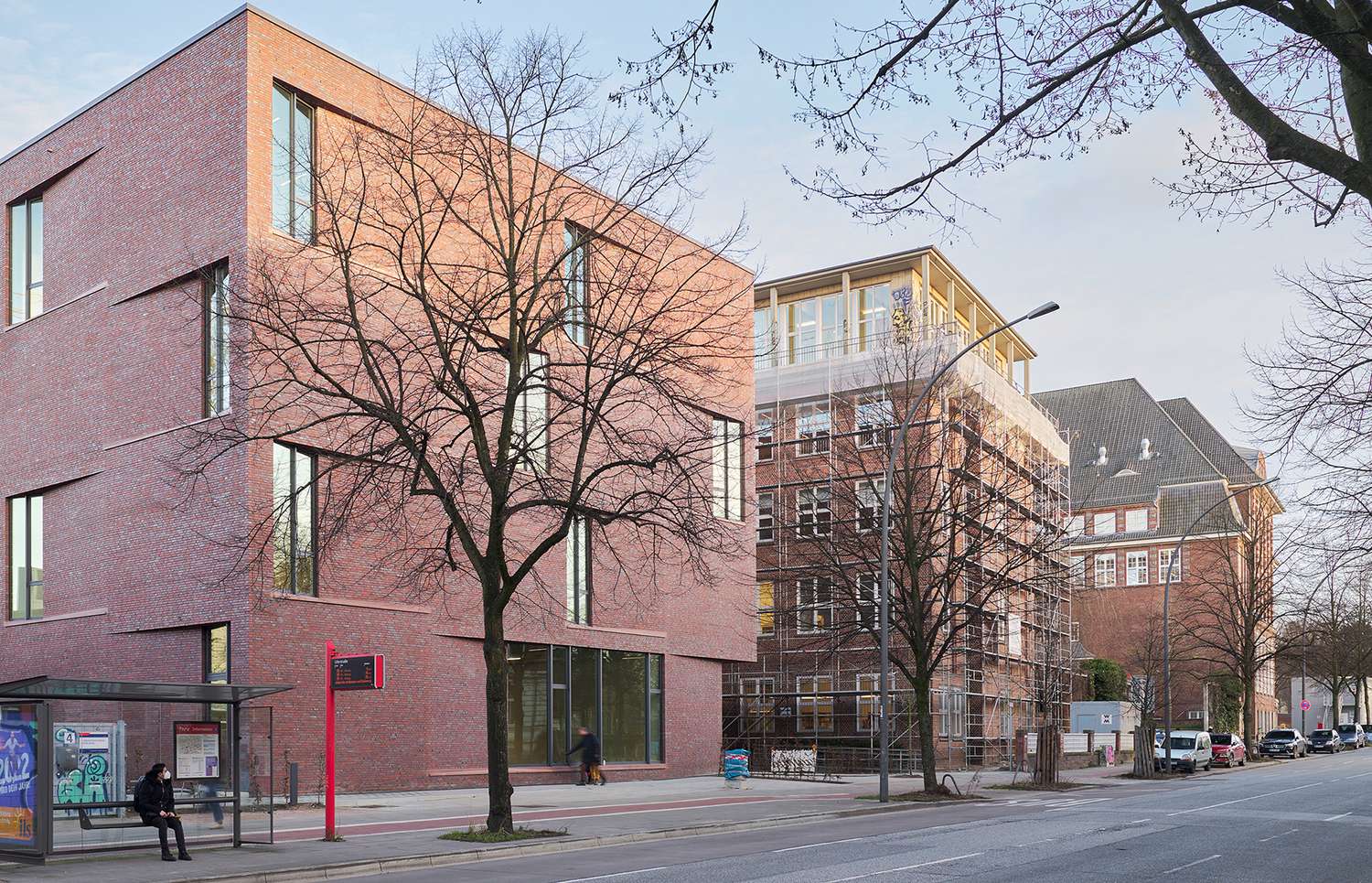
New studio in the row of houses at Lerchenfeld, in the background the building of Fritz Schumacher; photo: Tim Albrecht
After more than 40 years of intensive effort, a long-cherished dream is becoming reality for the HFBK Hamburg. With the newly opened studio building, the main areas of study Painting/Drawing, Sculpture and Time-Related Media will finally have the urgently needed studio space for Master's students. It simply needs space for their own ideas, for thinking, for art production, exhibitions and as a depot.
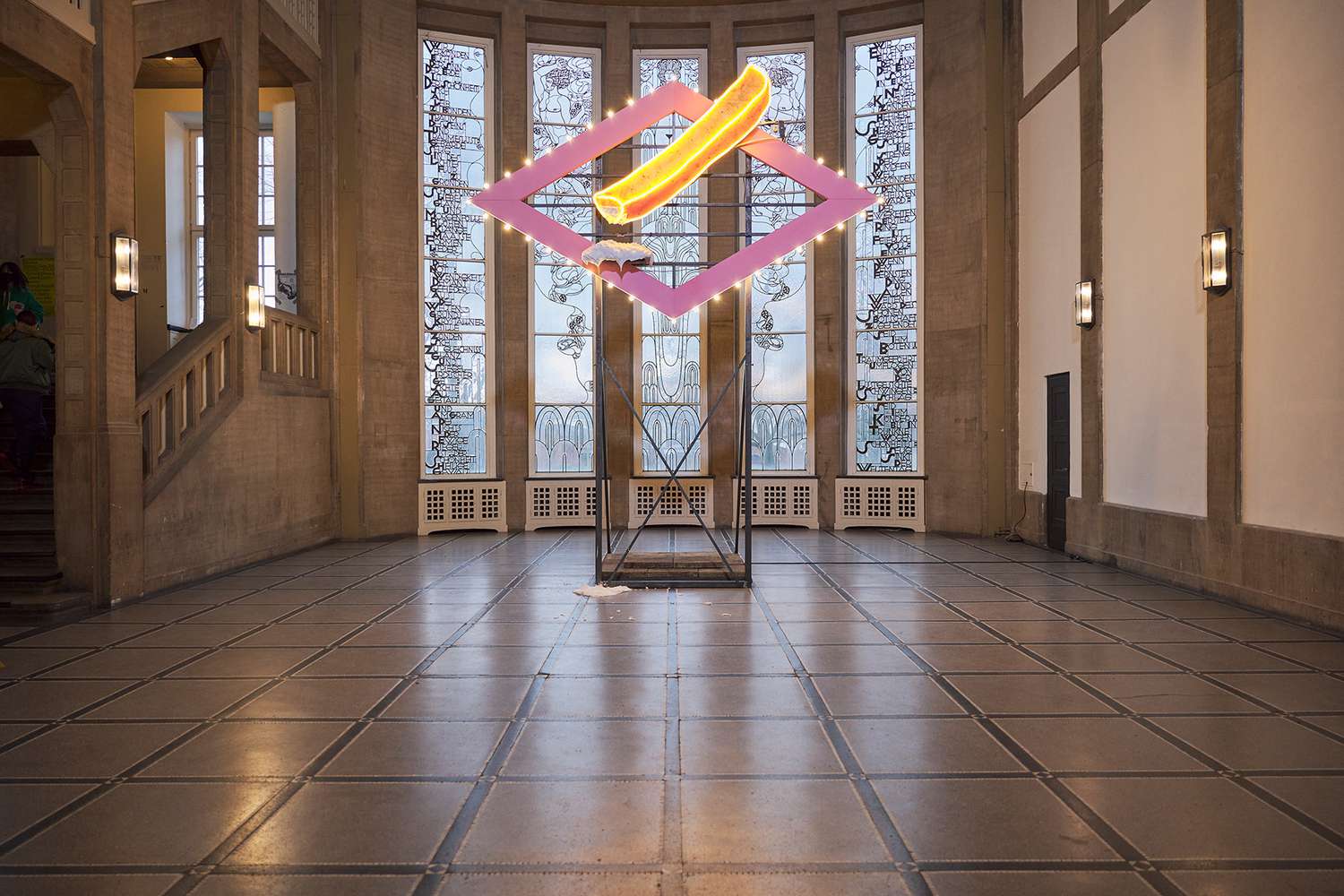
Martha Szymkowiak / Emilia Bongilaj, Installation “Mmh”; photo: Tim Albrecht
After last year's digital edition, the 2022 annual exhibition at the HFBK Hamburg will once again take place with an audience. From 11-13 February, students from all departments will present their artistic work in the building at Lerchenfeld, Wartenau 15 and the newly opened Atelierhaus.
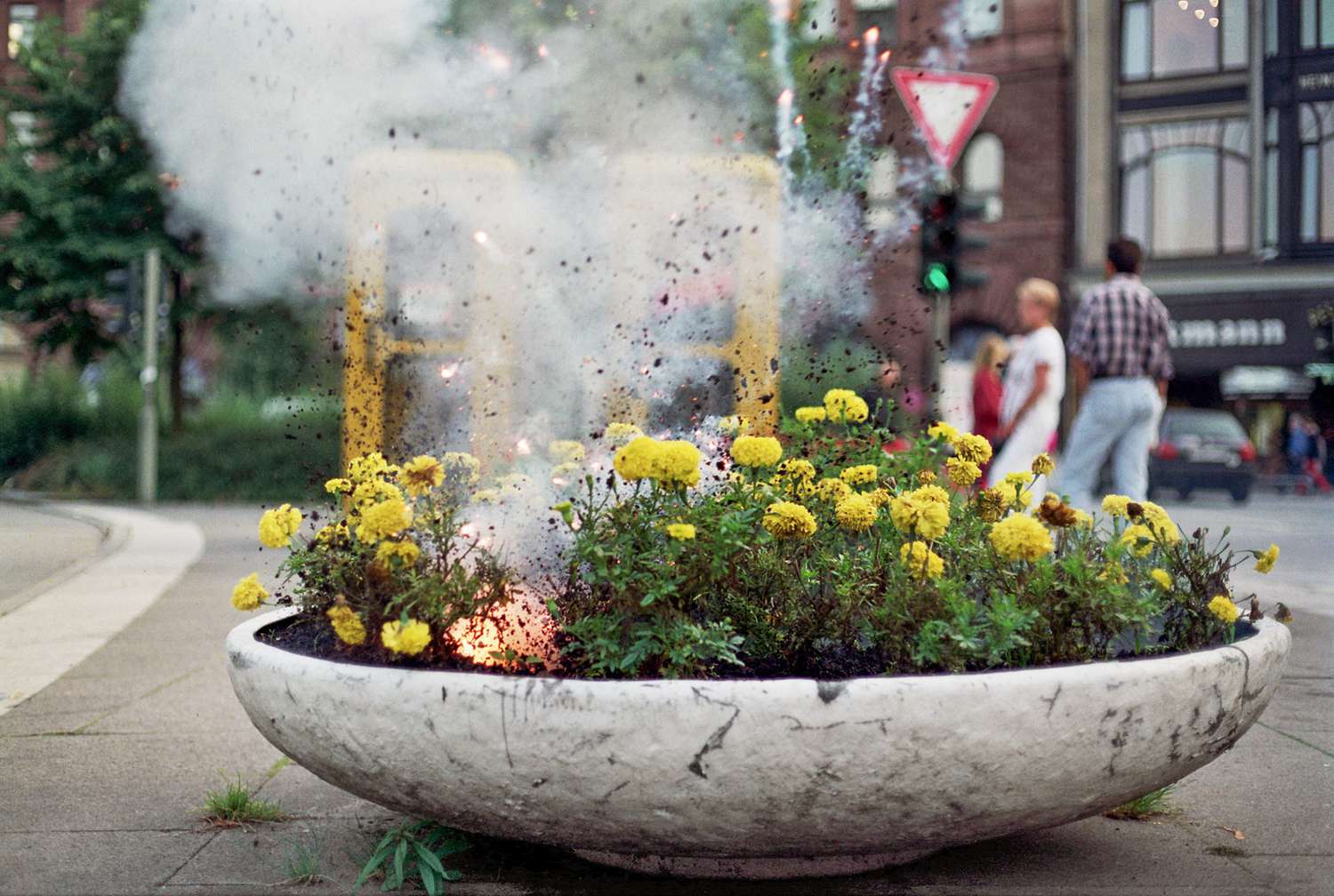
Annette Wehrmann, photography from the series Blumensprengungen, 1991-95; photo: Ort des Gegen e.V., VG-Bild Kunst Bonn
The international conference at HFBK Hamburg on December 2-4, 2021 – jointly conceived by Nora Sternfeld and Michaela Melián –, is dedicated to the history of artistic counter-monuments and forms of protest, discusses aesthetics of memory and historical manifestations in public space, and asks about para-monuments for the present.
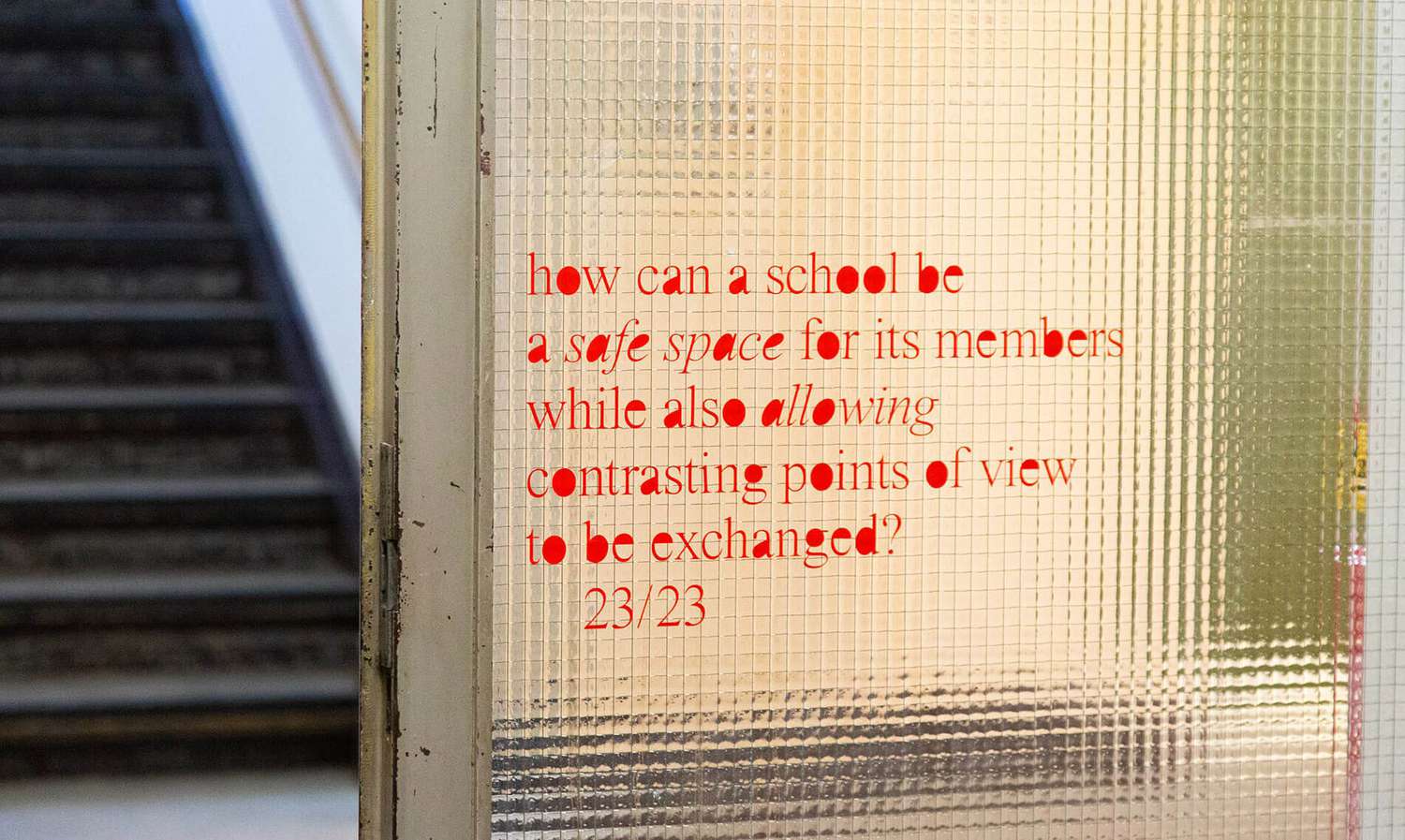
23 Fragen des Institutional Questionaire, grafisch umgesetzt von Ran Altamirano auf den Türgläsern der HFBK Hamburg zur Jahresausstellung 2021; photo: Charlotte Spiegelfeld
Who speaks? Who paints which motif? Who is shown, who is not? Questions of identity politics play an important role in art and thus also at the HFBK Hamburg. In the current issue, the university's own Lerchenfeld magazine highlights university structures as well as student initiatives that deal with diversity and identity.
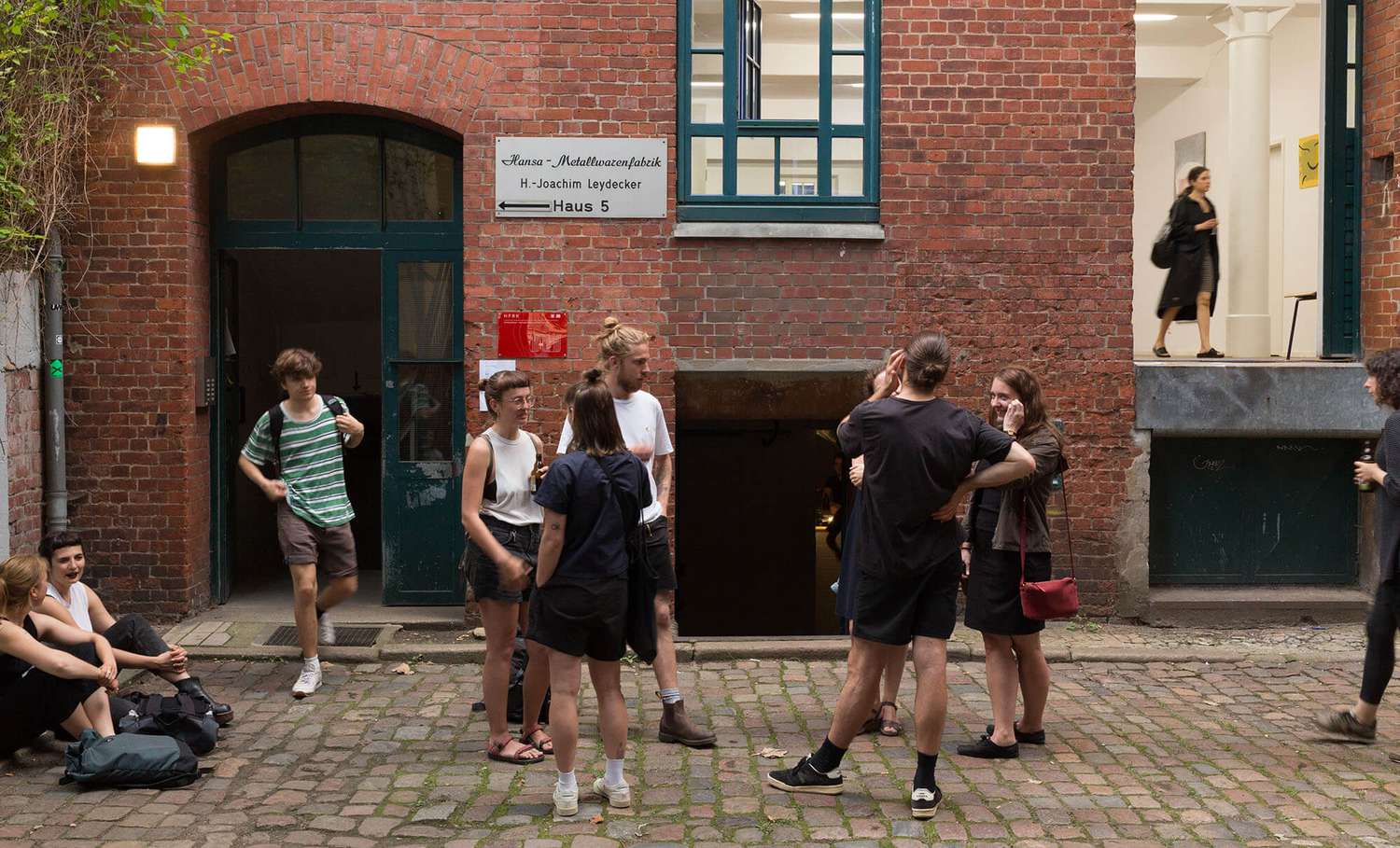
ASA Open Studio 2019, Karolinenstraße 2a, Haus 5; photo: Matthew Muir
Since 2010, the HFBK has organised the international exchange programme Art School Alliance. It enables HFBK students to spend a semester abroad at renowned partner universities and, vice versa, invites international art students to the HFBK. At the end of their stay in Hamburg, the students exhibit their work in the Open Studios in Karolinenstraße, which are now open again to the art-interested public.
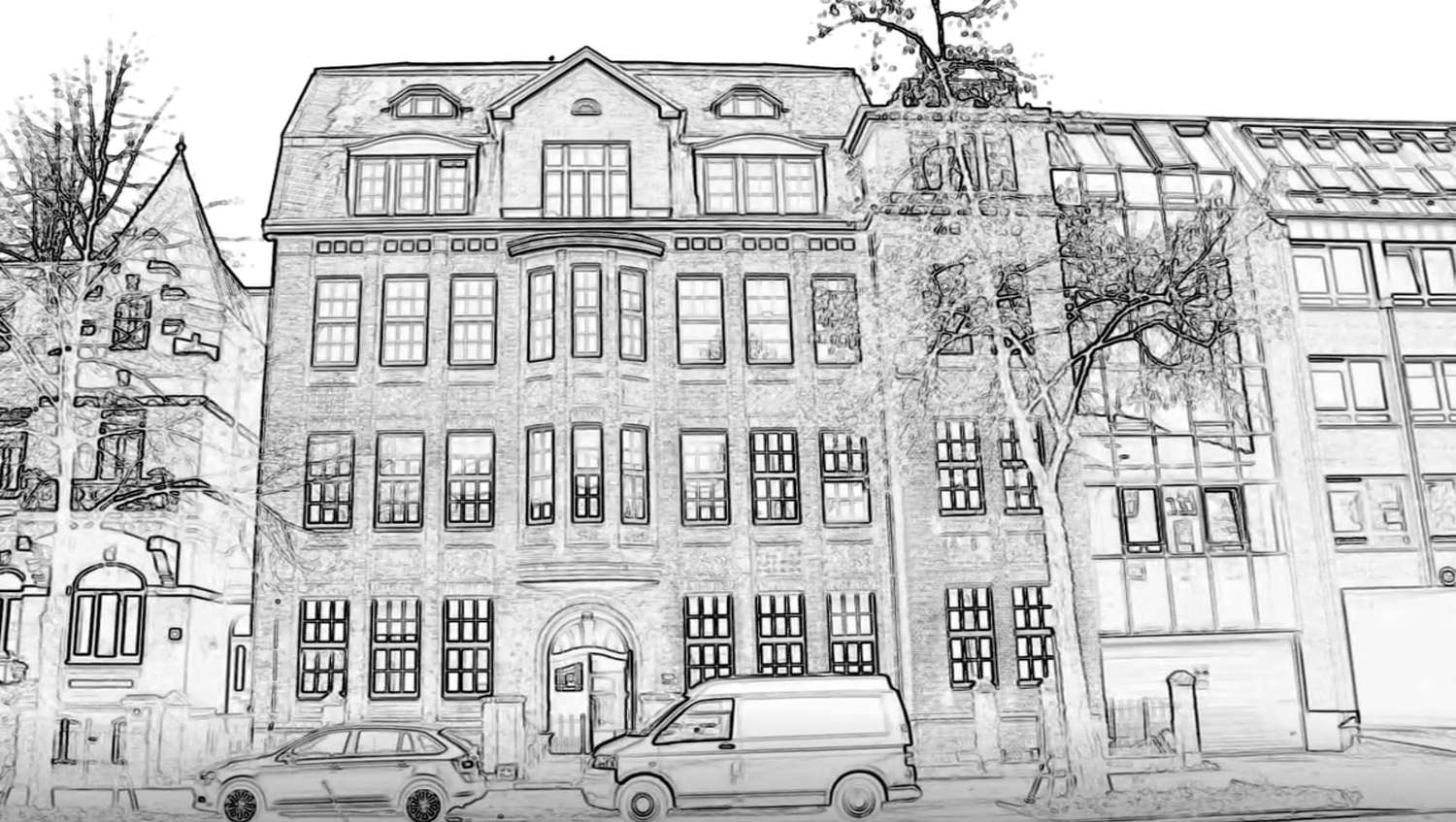
Studiengruppe Prof. Dr. Anja Steidinger, Was animiert uns?, 2021, Mediathek der HFBK Hamburg, Filmstill
The art education professors Nora Sternfeld and Anja Steidinger initiated the format "Wartenau Assemblies". It oscillates between art, education, research and activism. Complementing this open space for action, there is now a dedicated website that accompanies the discourses, conversations and events.
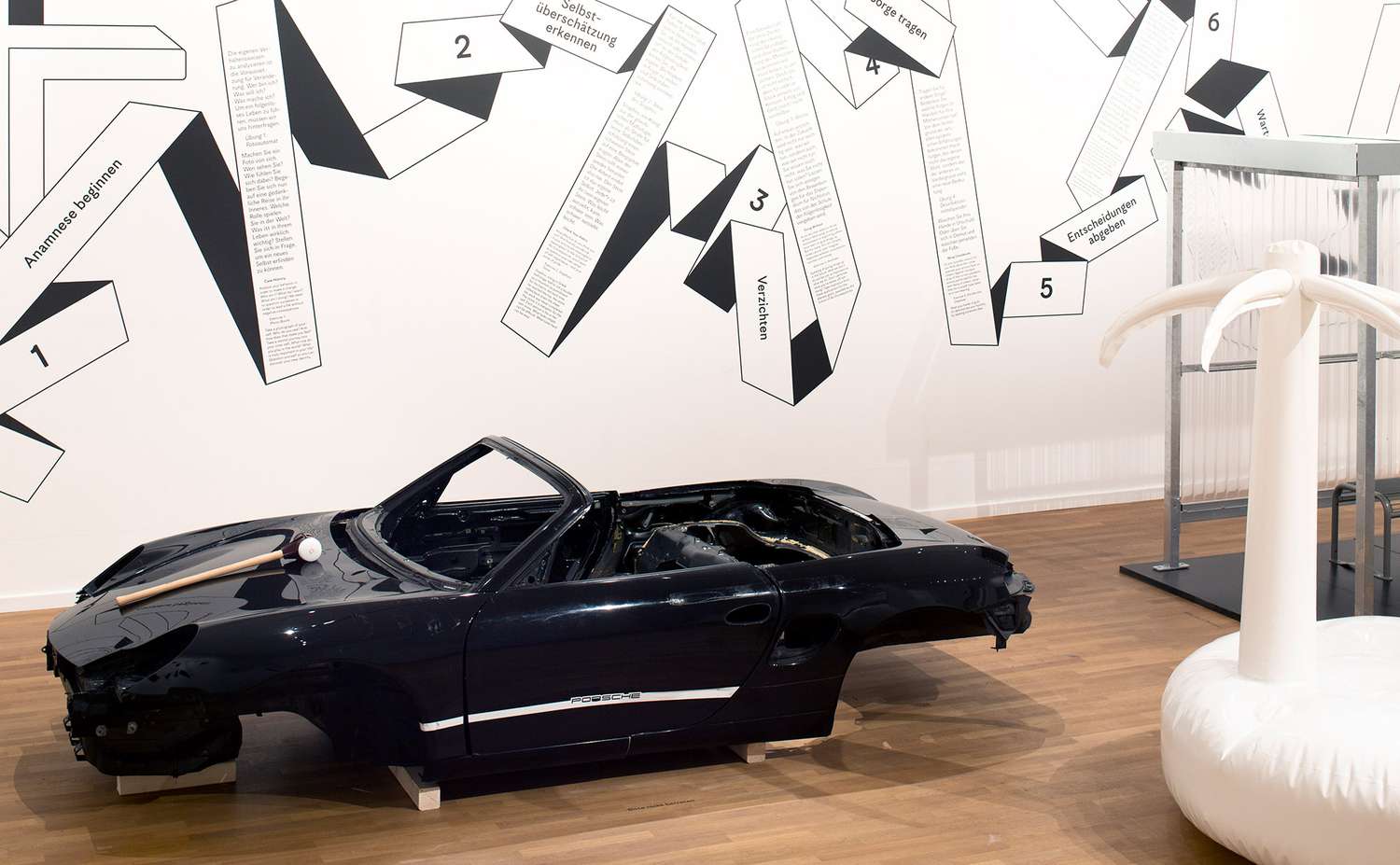
Ausstellungsansicht "Schule der Folgenlosigkeit. Übungen für ein anderes Leben" im Museum für Kunst und Gewerbe Hamburg; photo: Maximilian Schwarzmann
Everyone is talking about consequences: The consequences of climate change, the Corona pandemic or digitalization. Friedrich von Borries (professor of design theory), on the other hand, is dedicated to consequence-free design. In “School of No Consequences. Exercises for a New Life” at the Museum für Kunst und Gewerbe Hamburg, he links collection objects with a "self-learning room" set up especially for the exhibition in such a way that a new perspective on "sustainability" emerges and supposedly universally valid ideas of a "proper life" are questioned.
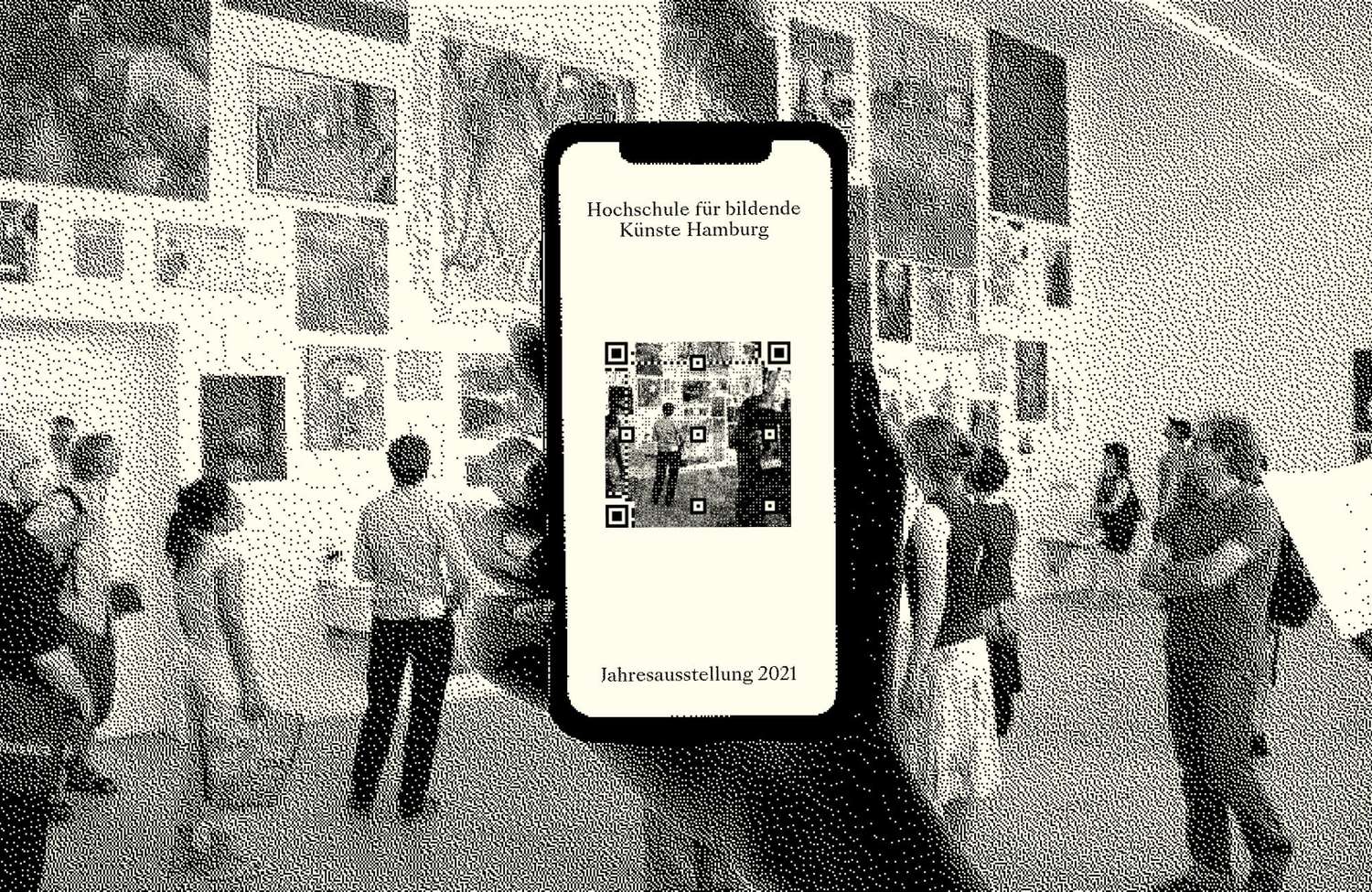
Annual exhibition a bit different: From February 12- 14, 2021 students at the Hamburg University of Fine Arts, together with their professors, had developed a variety of presentations on different communication channels. The formats ranged from streamed live performances to video programs, radio broadcasts, a telephone hotline, online conferences, and a web store for editions. In addition, isolated interventions could be discovered in the outdoor space of the HFBK and in the city.
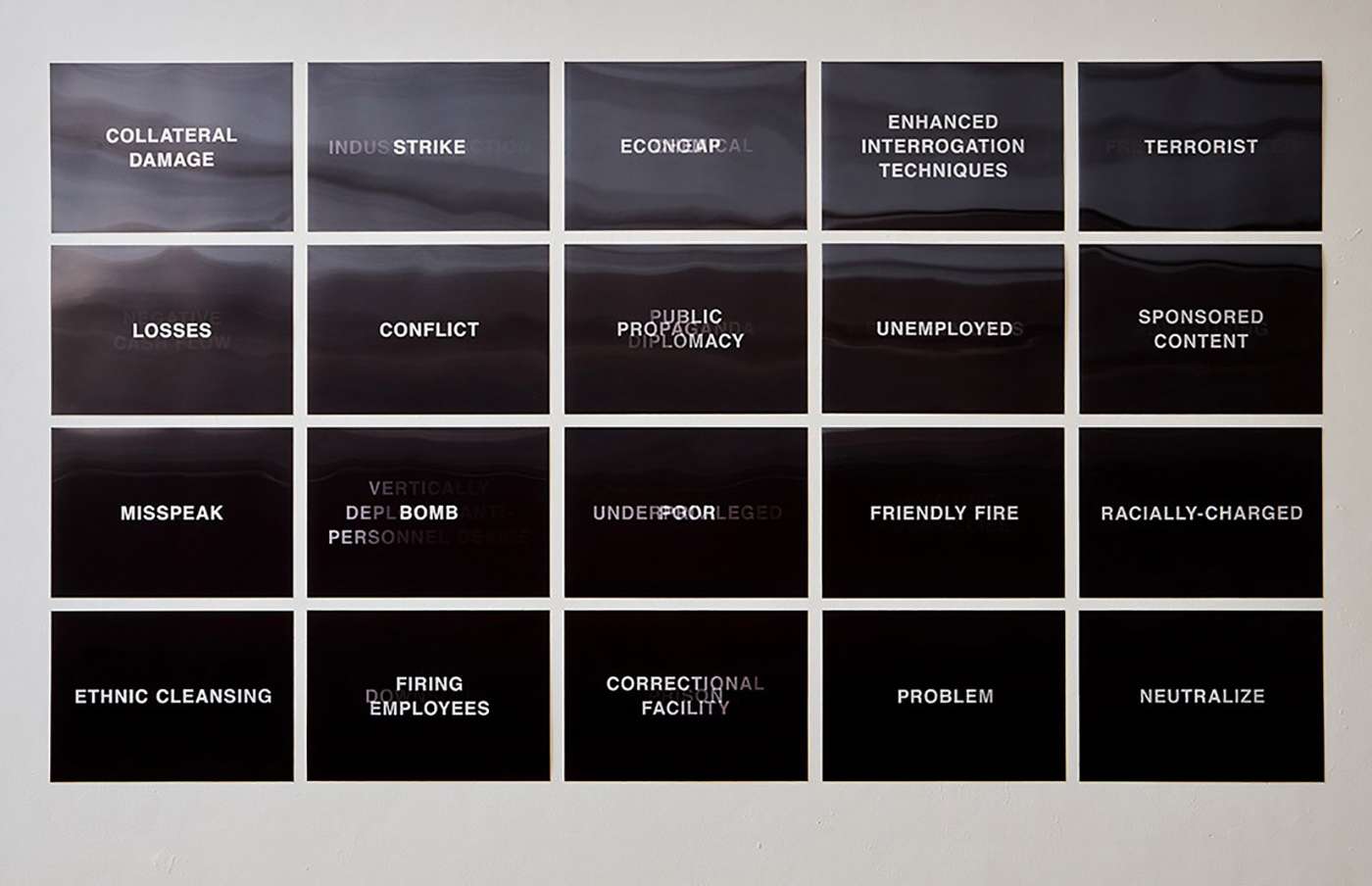
Katja Pilipenko
On the evening of November 4, the HFBK celebrated the opening of the academic year 2020/21 as well as the awarding of the Hiscox Art Prize in a livestream - offline with enough distance and yet together online.
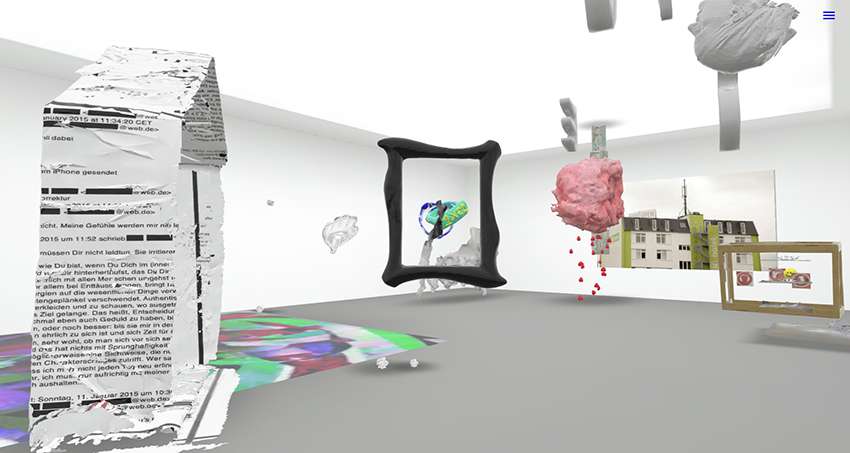
Exhibition Transparencies with works by Elena Crijnen, Annika Faescke, Svenja Frank, Francis Kussatz, Anne Meerpohl, Elisa Nessler, Julia Nordholz, Florentine Pahl, Cristina Rüesch, Janka Schubert, Wiebke Schwarzhans, Rosa Thiemer, Lea van Hall. Organized by Prof. Verena Issel and Fabian Hesse; photo: Screenshot
How the university brings together its artistic interdisciplinary study structure with digital formats and their possibilities.
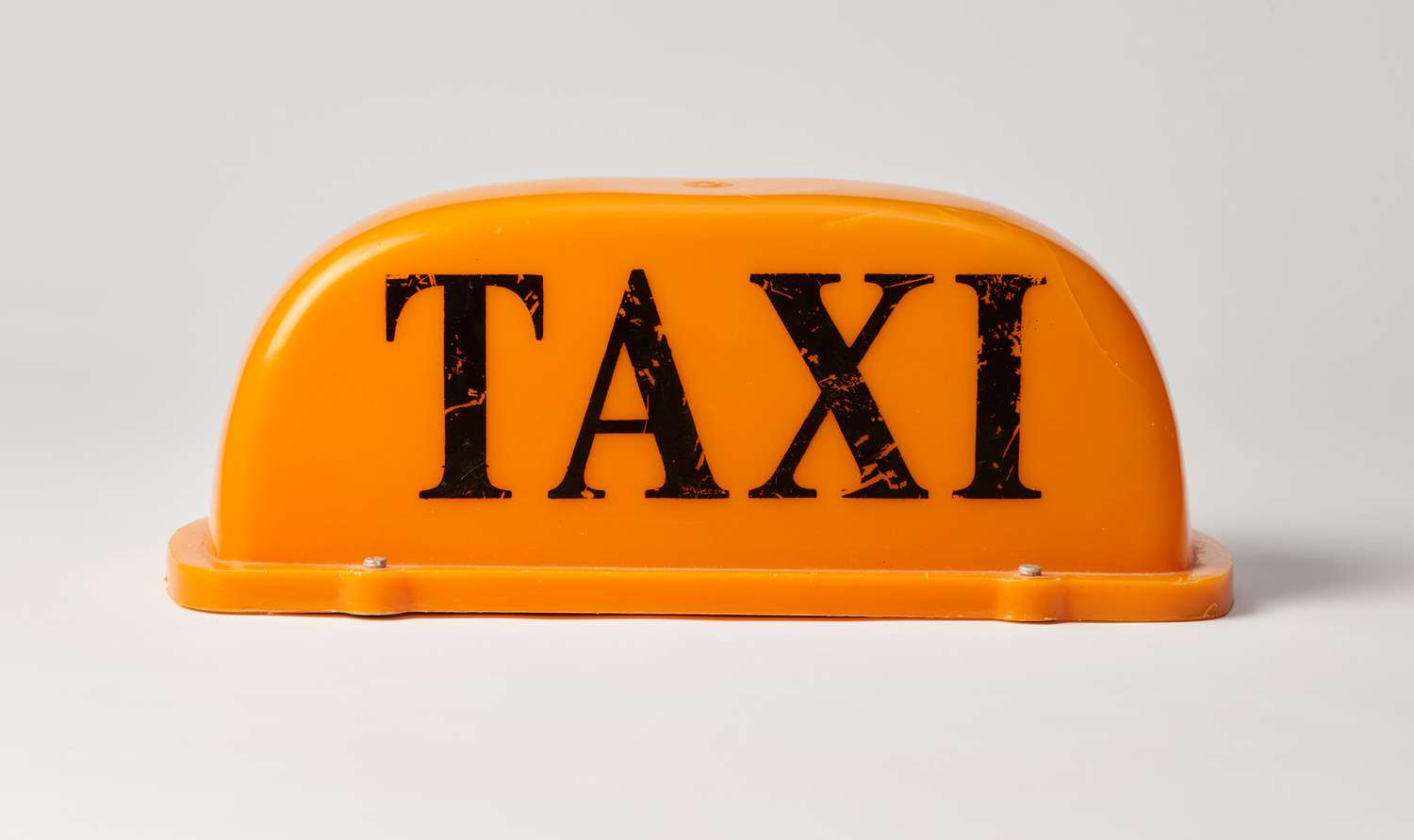
Alltagsrealität oder Klischee?; photo: Tim Albrecht
Studying art - and what comes next? The clichéd images stand their ground: Those who have studied art either become taxi drivers, work in a bar or marry rich. But only very few people could really live from art – especially in times of global crises. The HFBK Hamburg wanted to know more about this and commissioned the Faculty of Economics and Social Sciences at the University of Hamburg to conduct a broad-based survey of its graduates from the last 15 years.
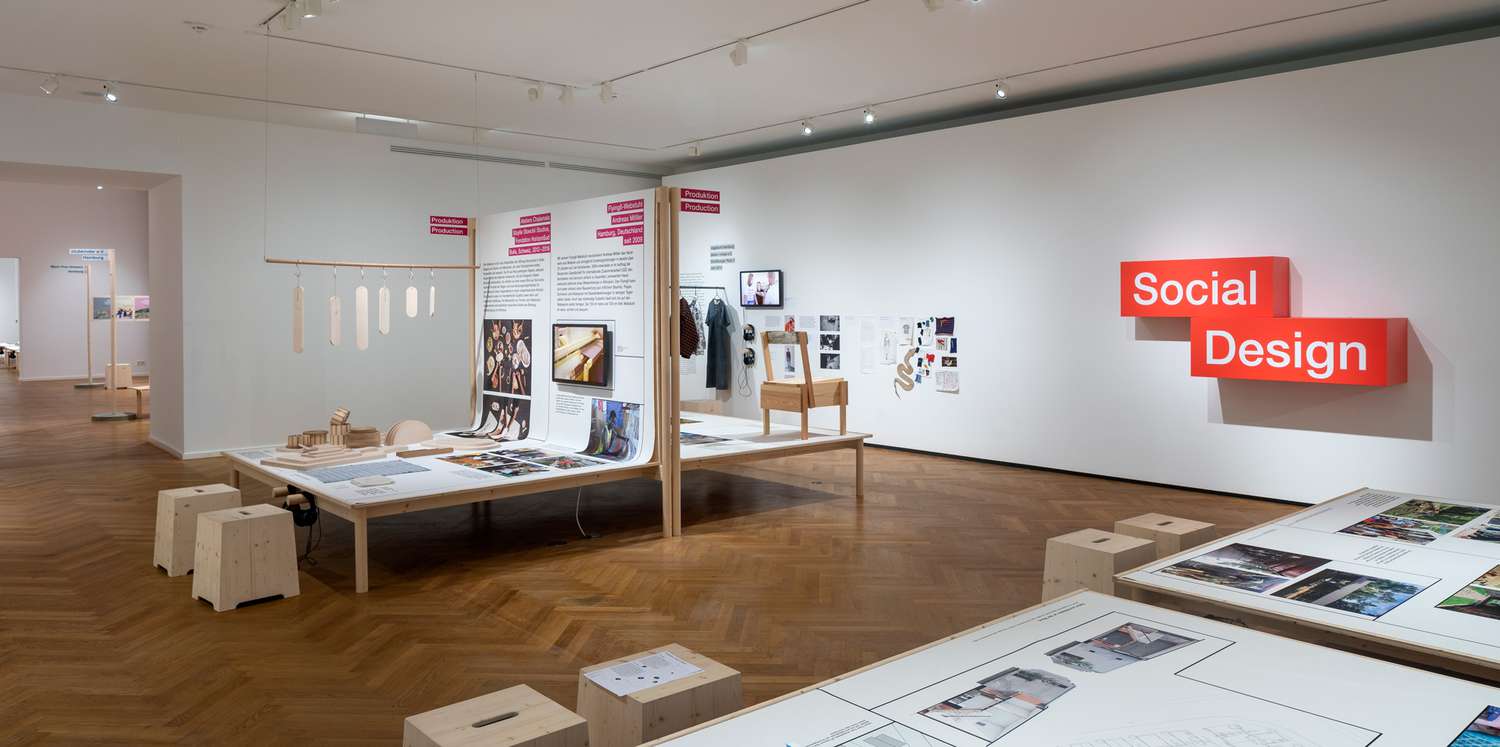
Ausstellung Social Design, Museum für Kunst und Gewerbe Hamburg, Teilansicht; photo: MKG Hamburg
Social Design, as its own claim is often formulated, wants to address social grievances and ideally change them. Therefore, it sees itself as critical of society – and at the same time optimizes the existing. So what is the political dimension of Social Design – is it a motor for change or does it contribute to stabilizing and normalizing existing injustices?
